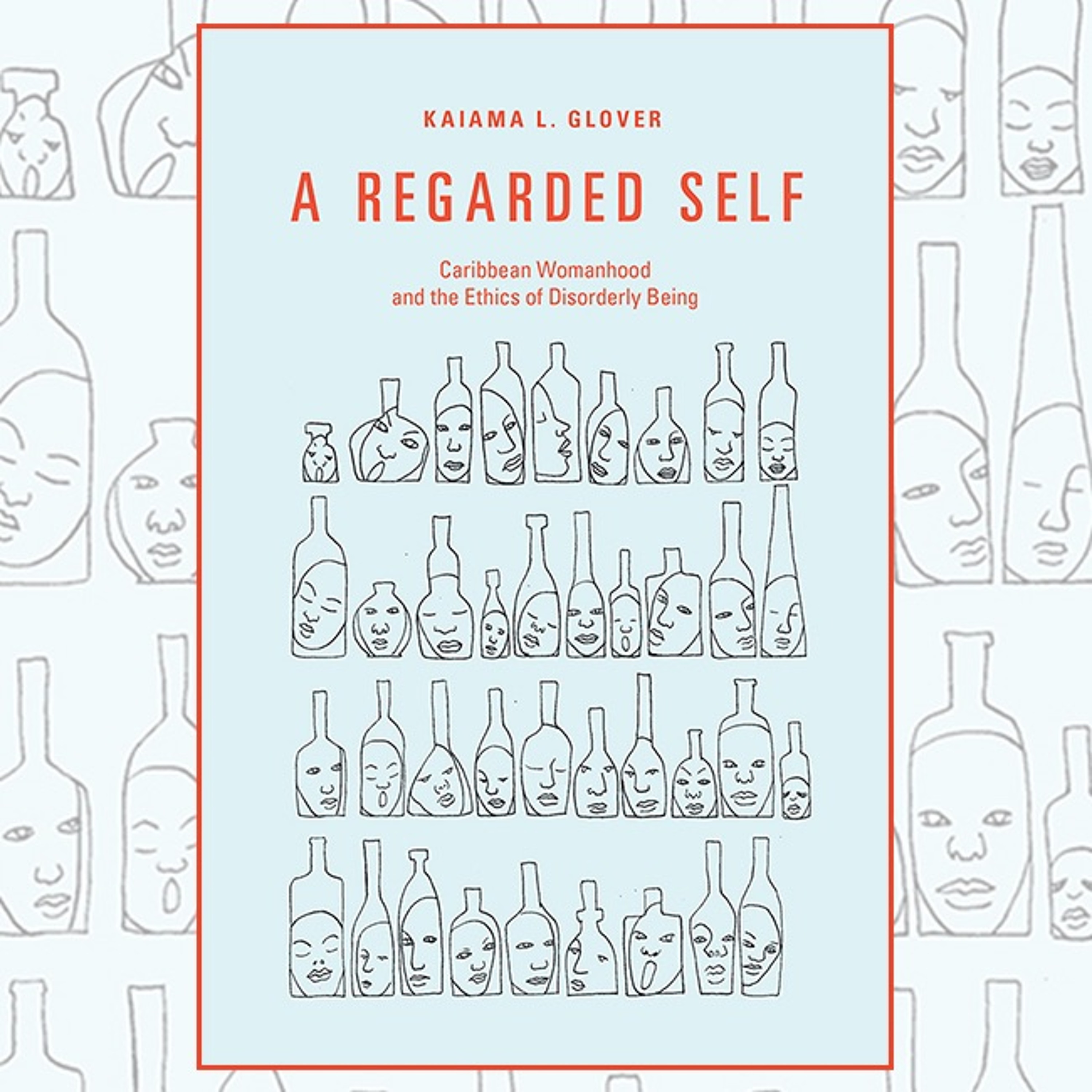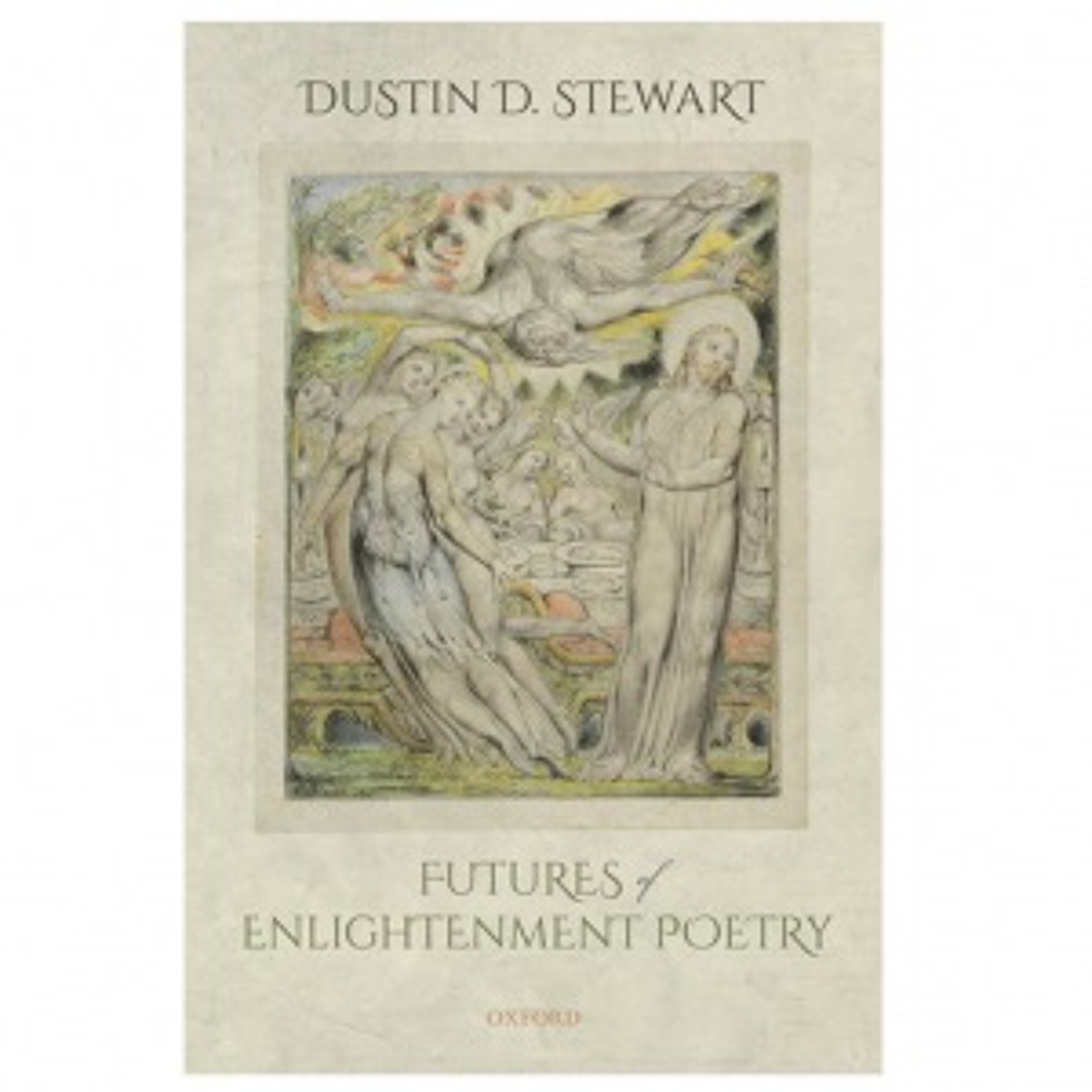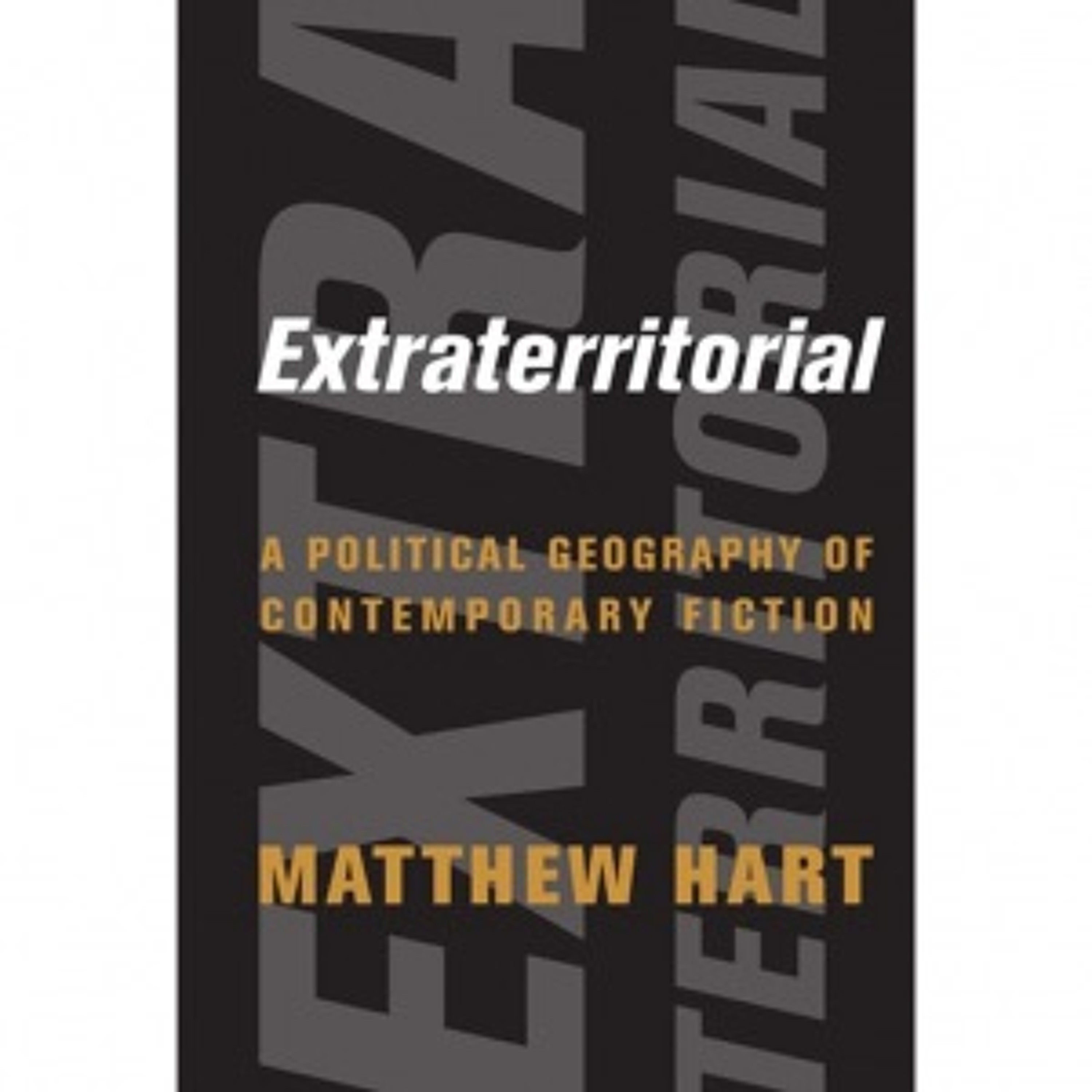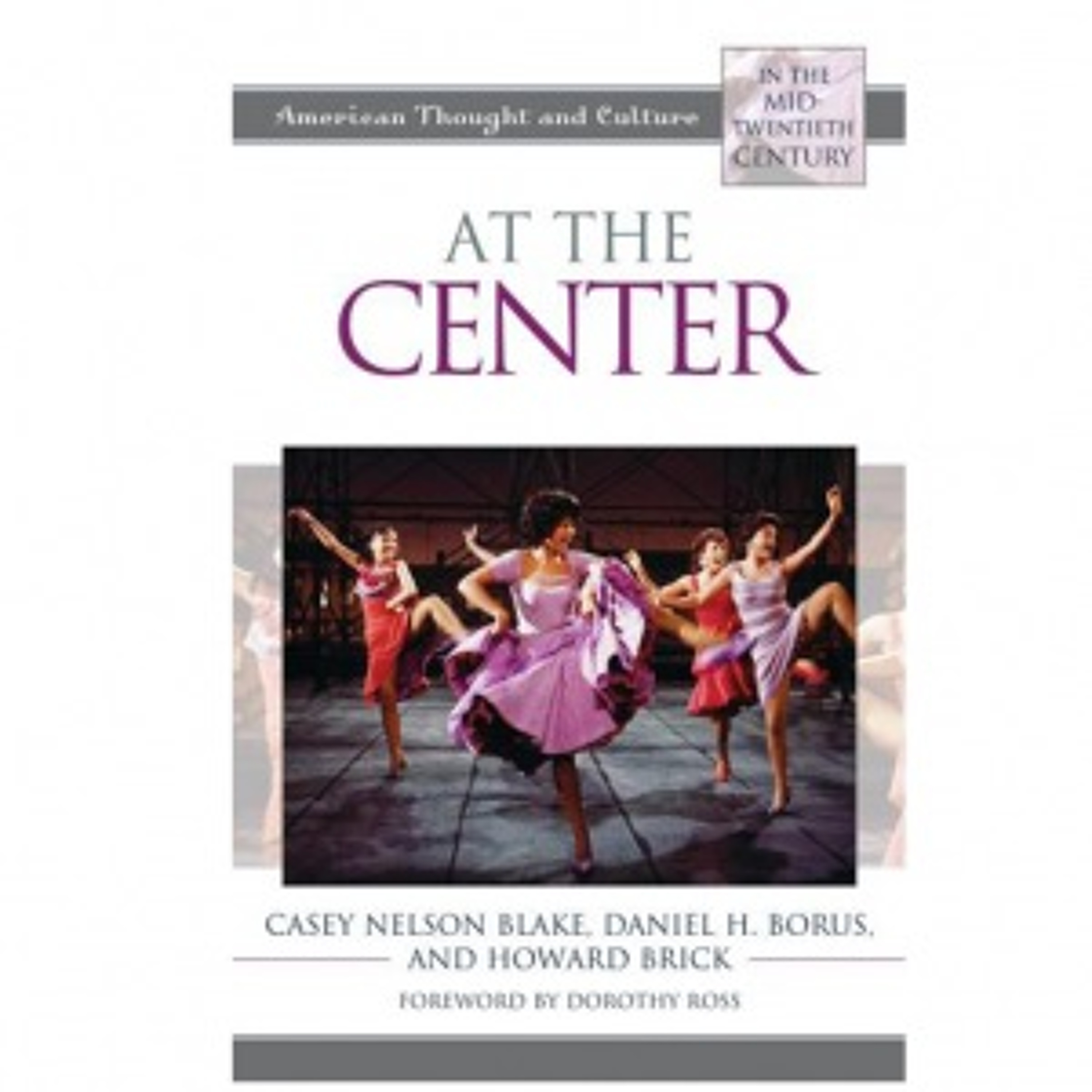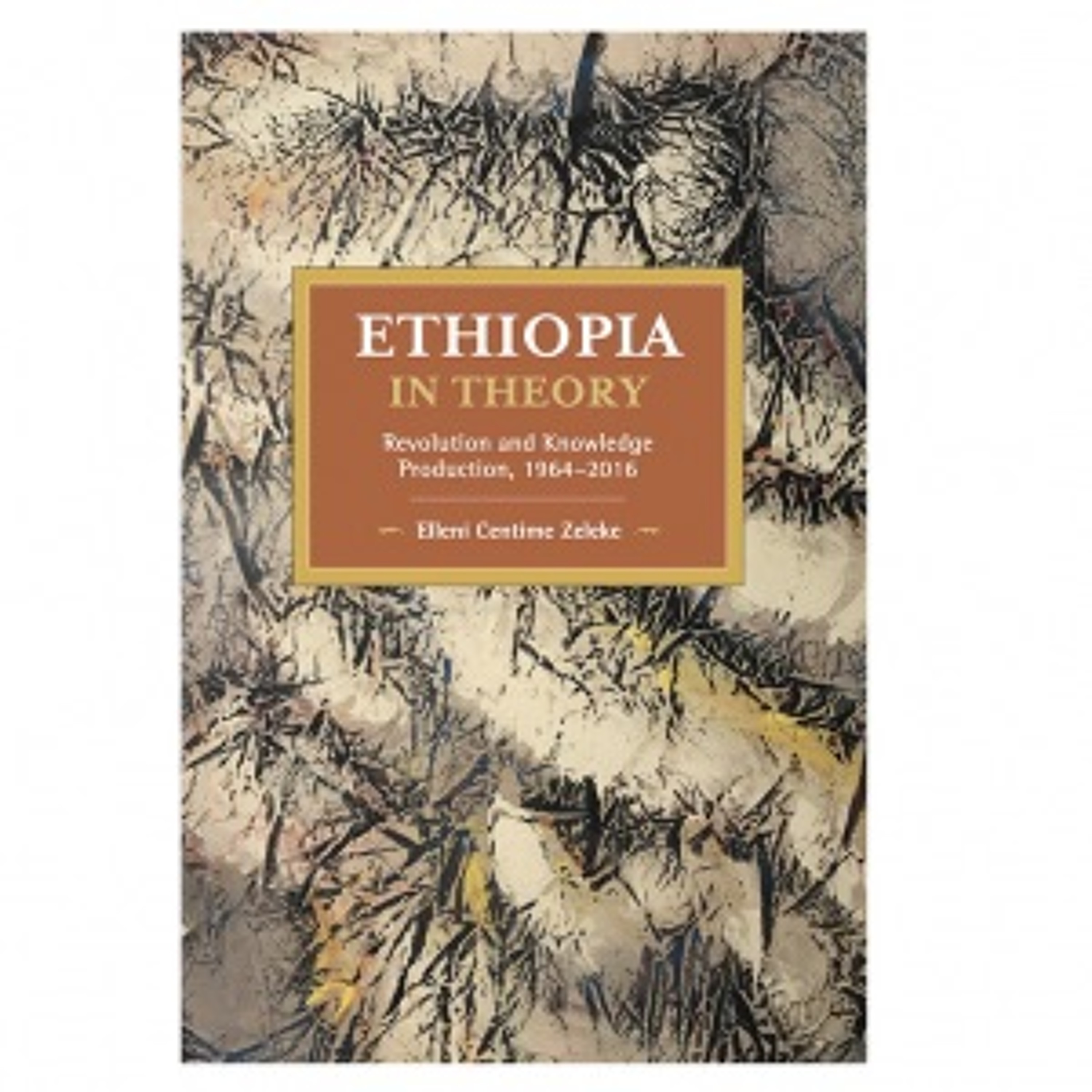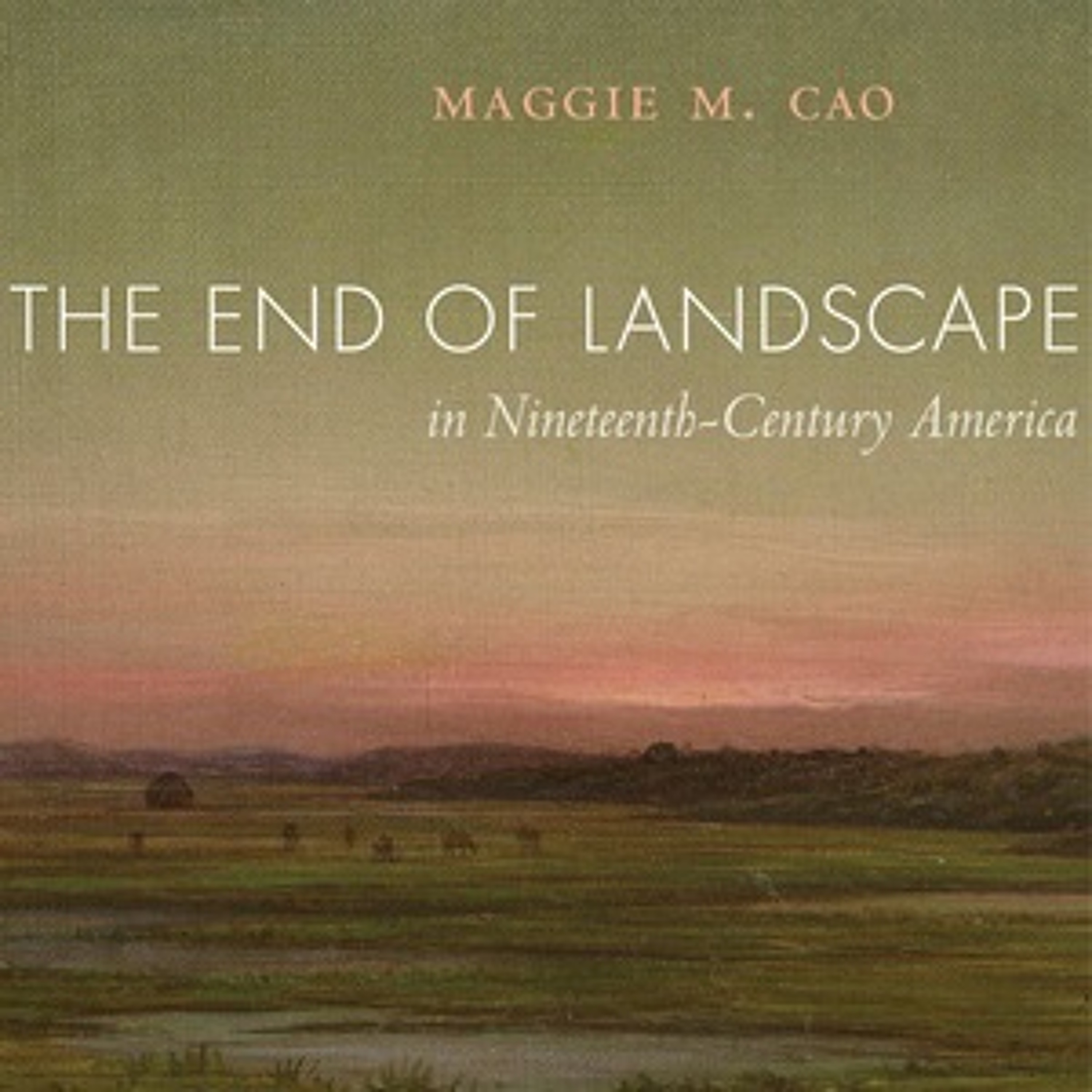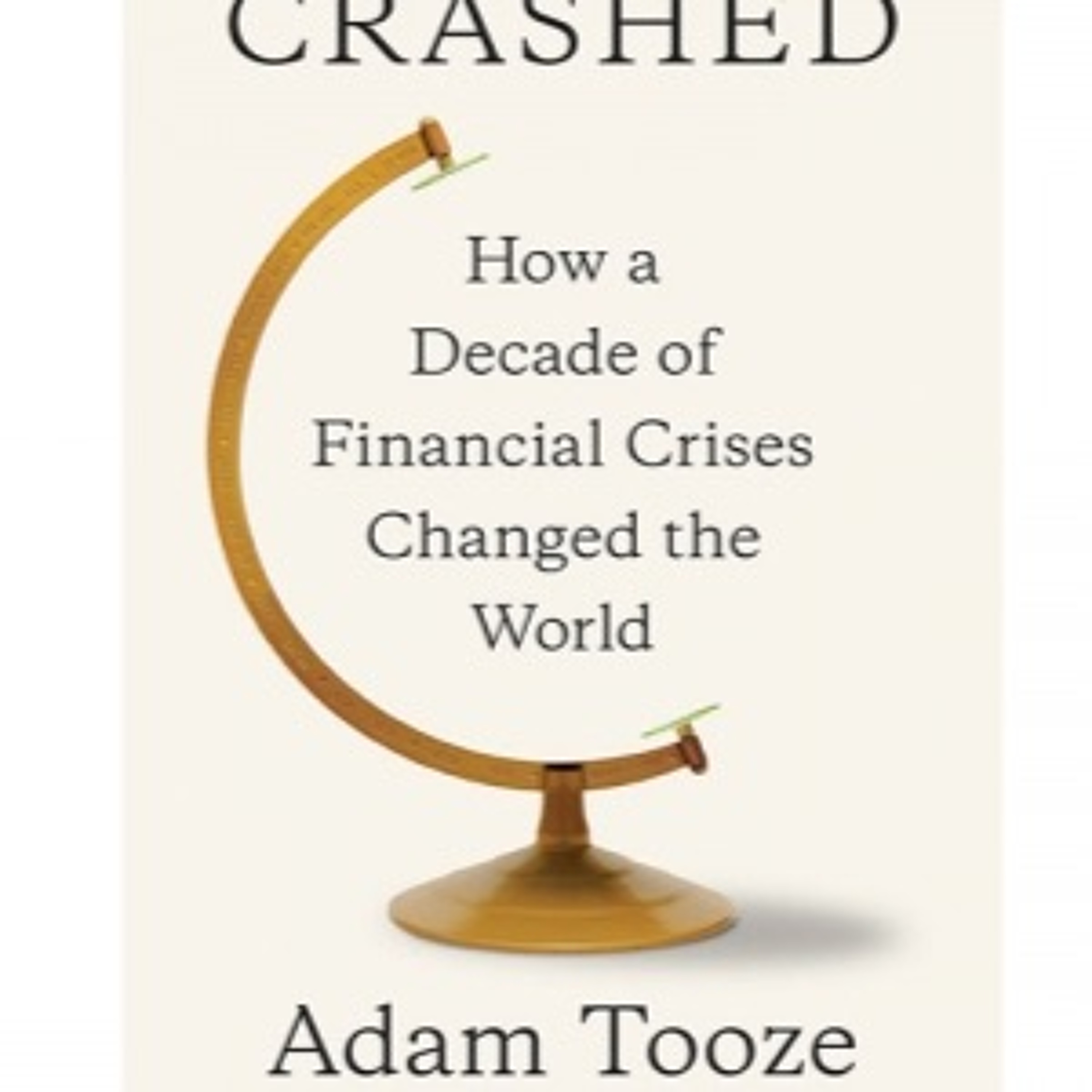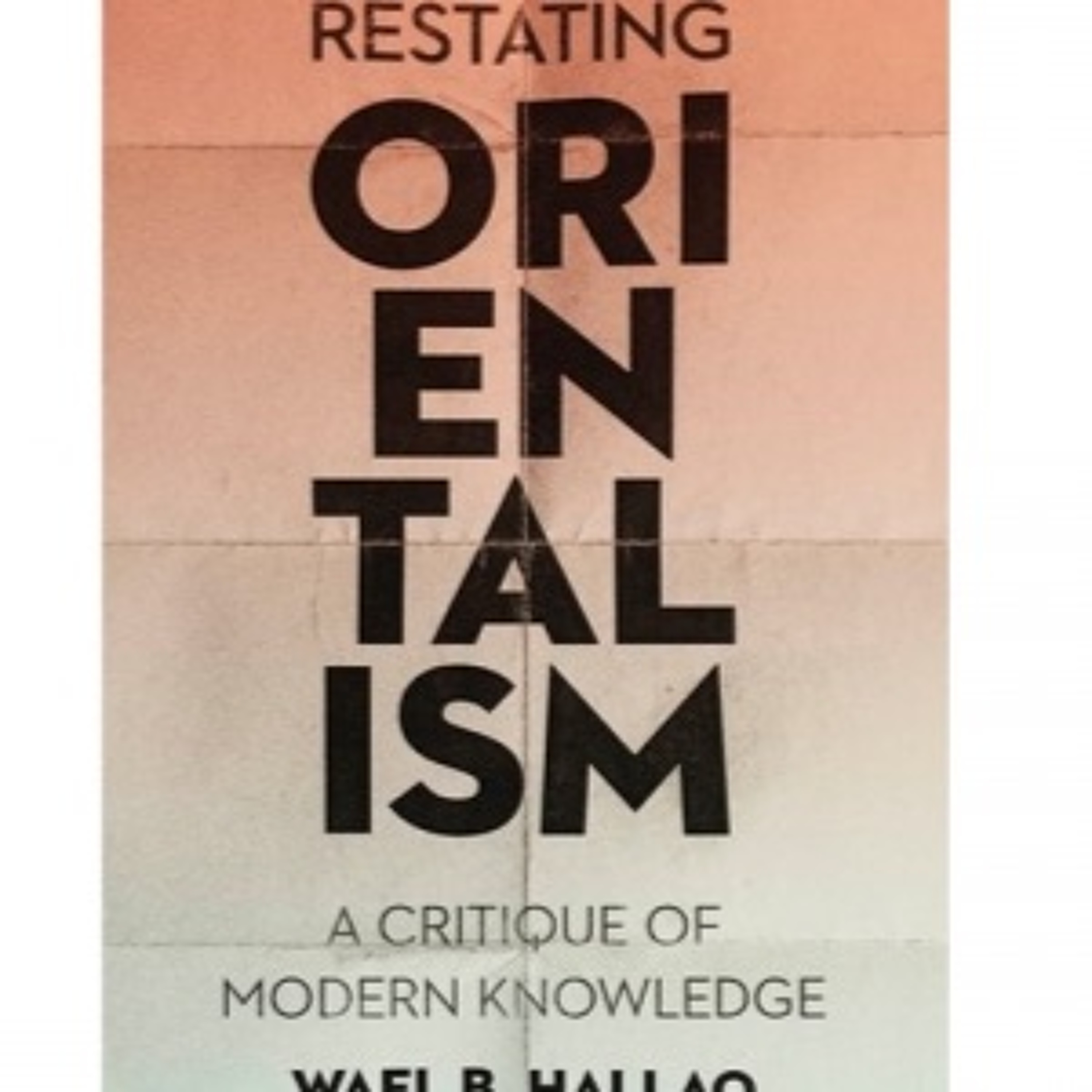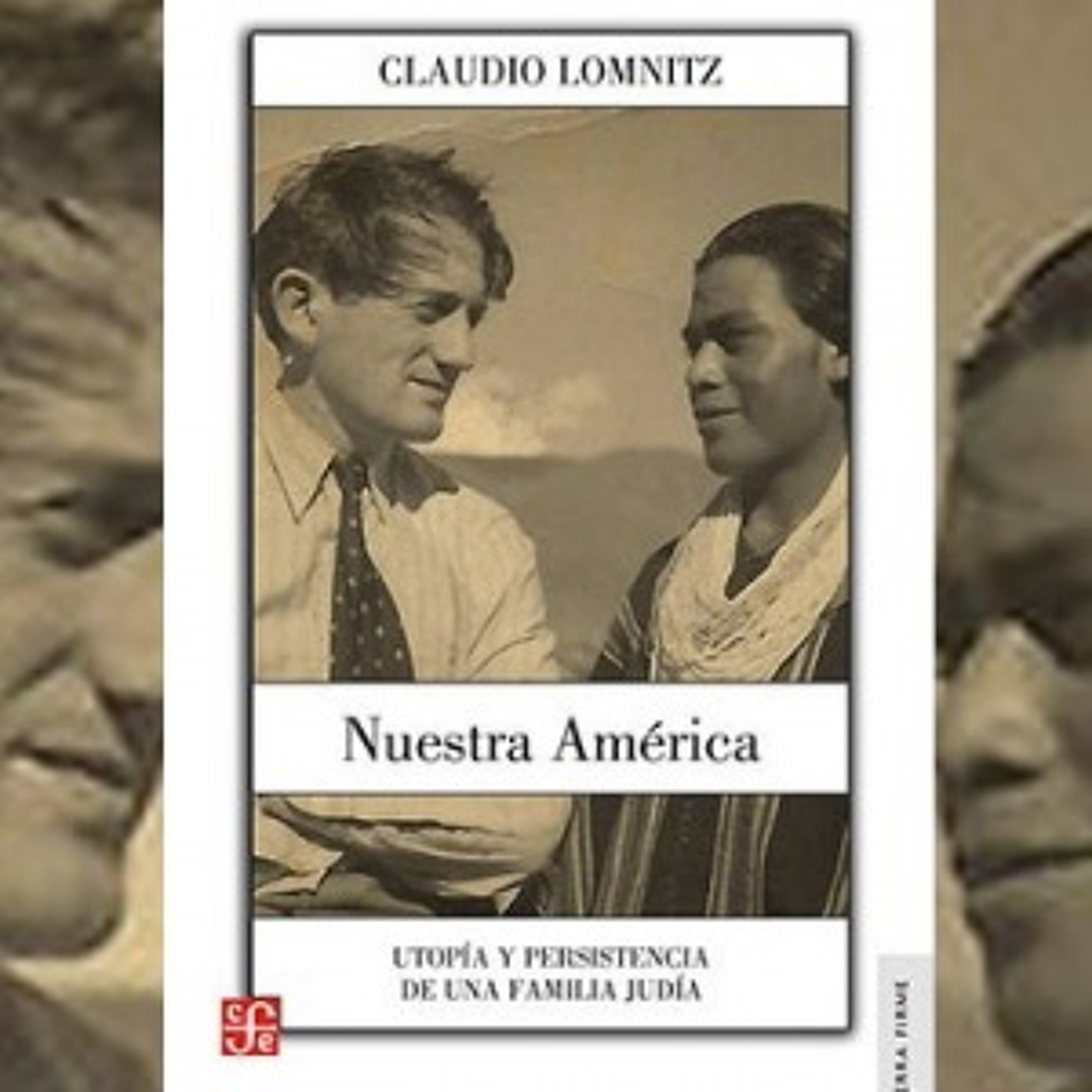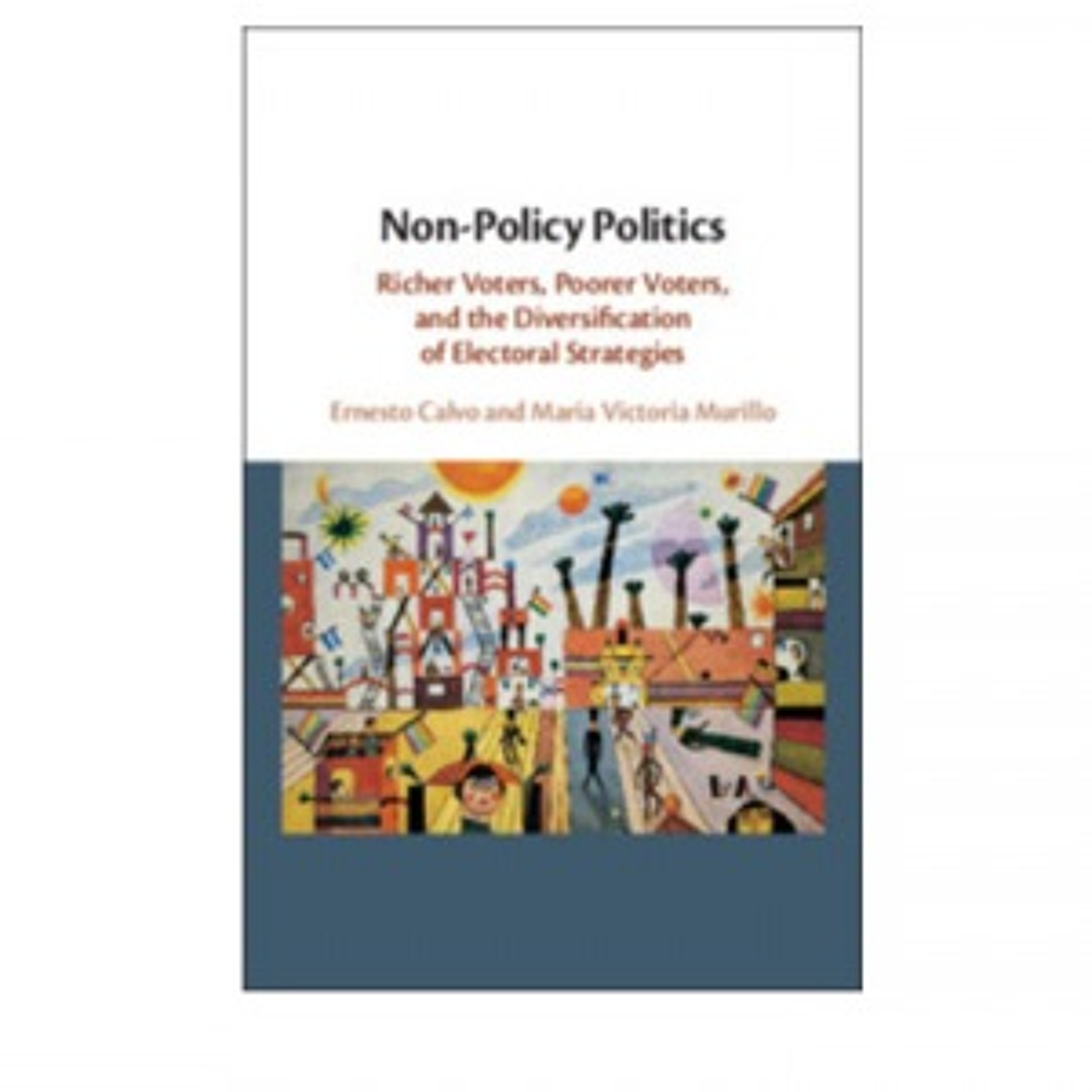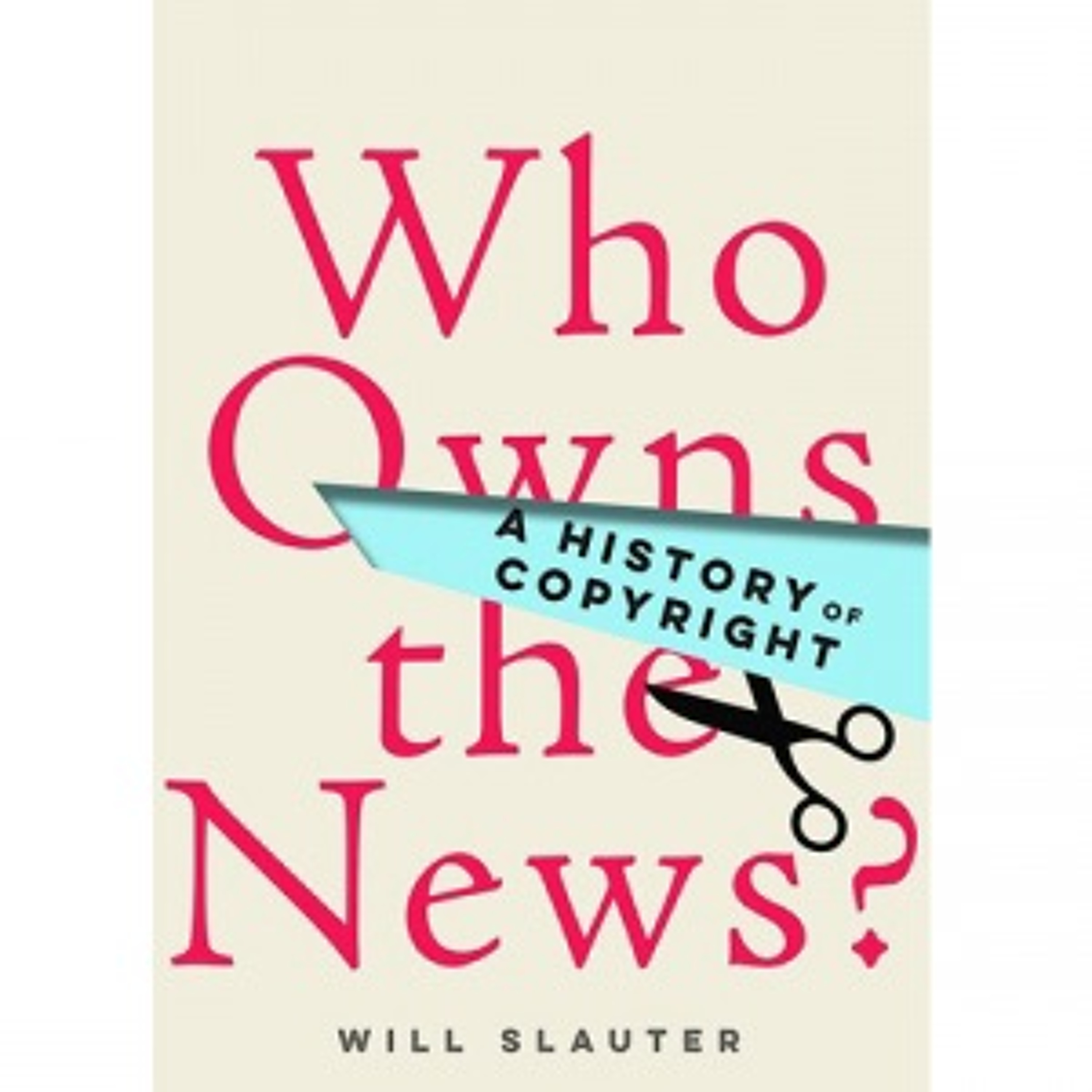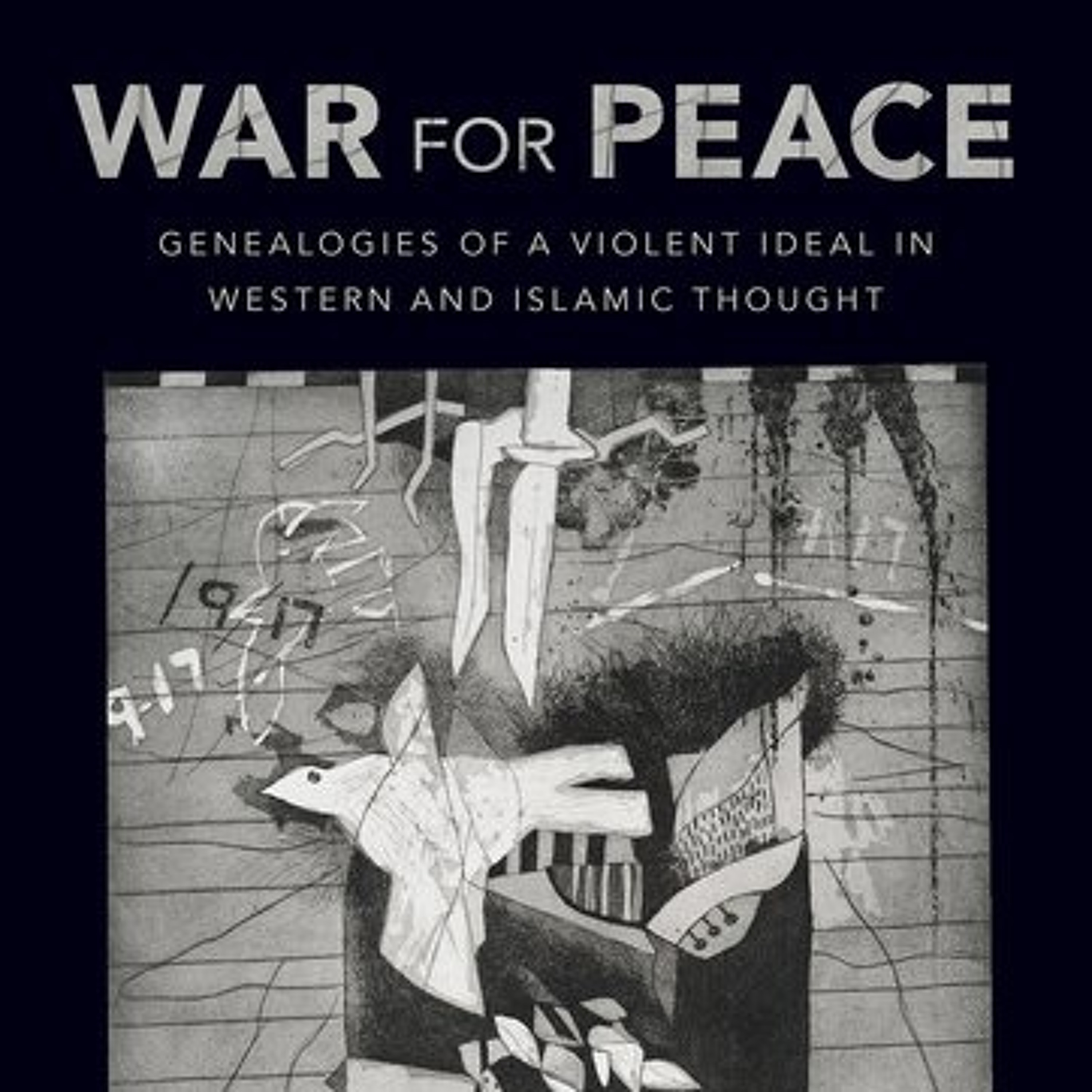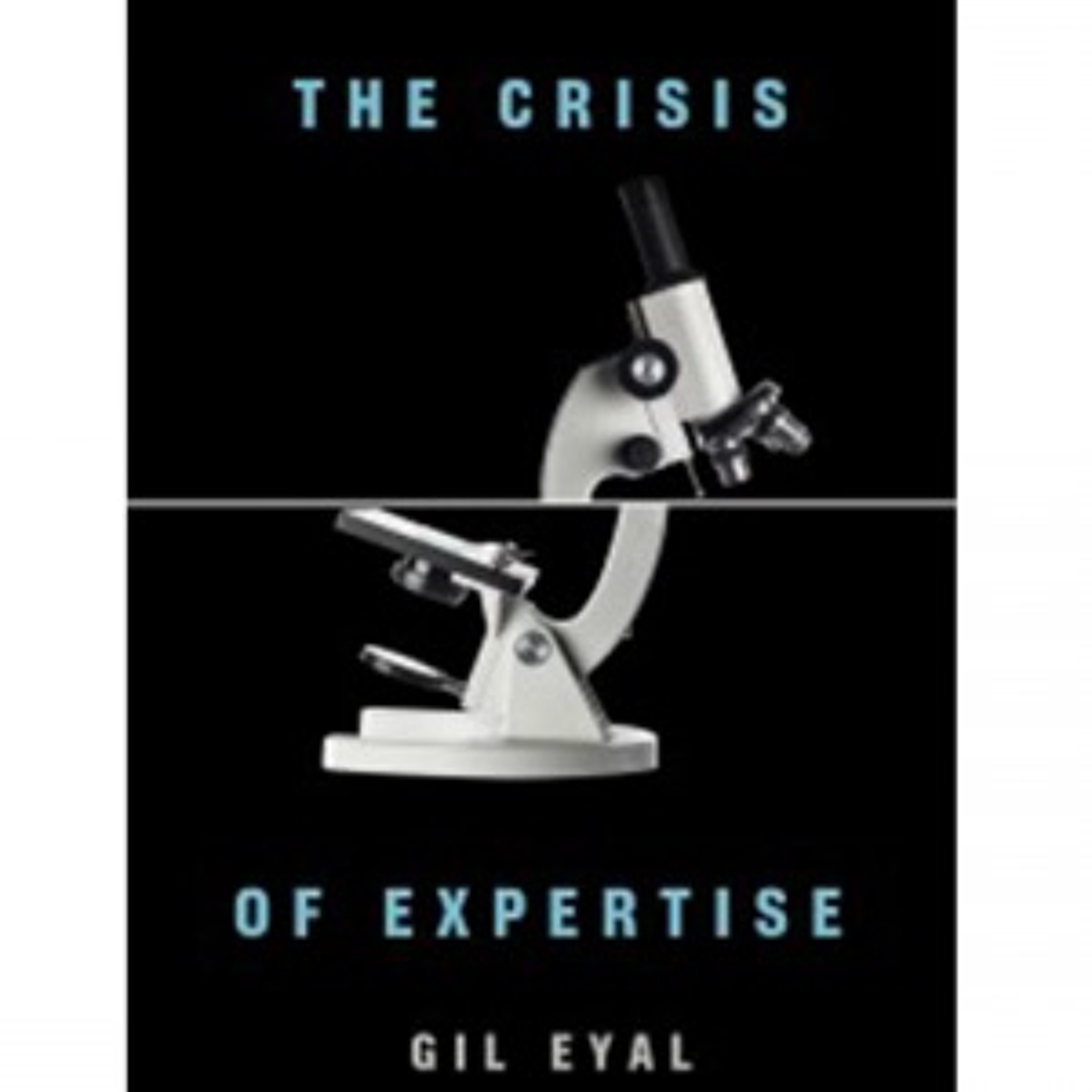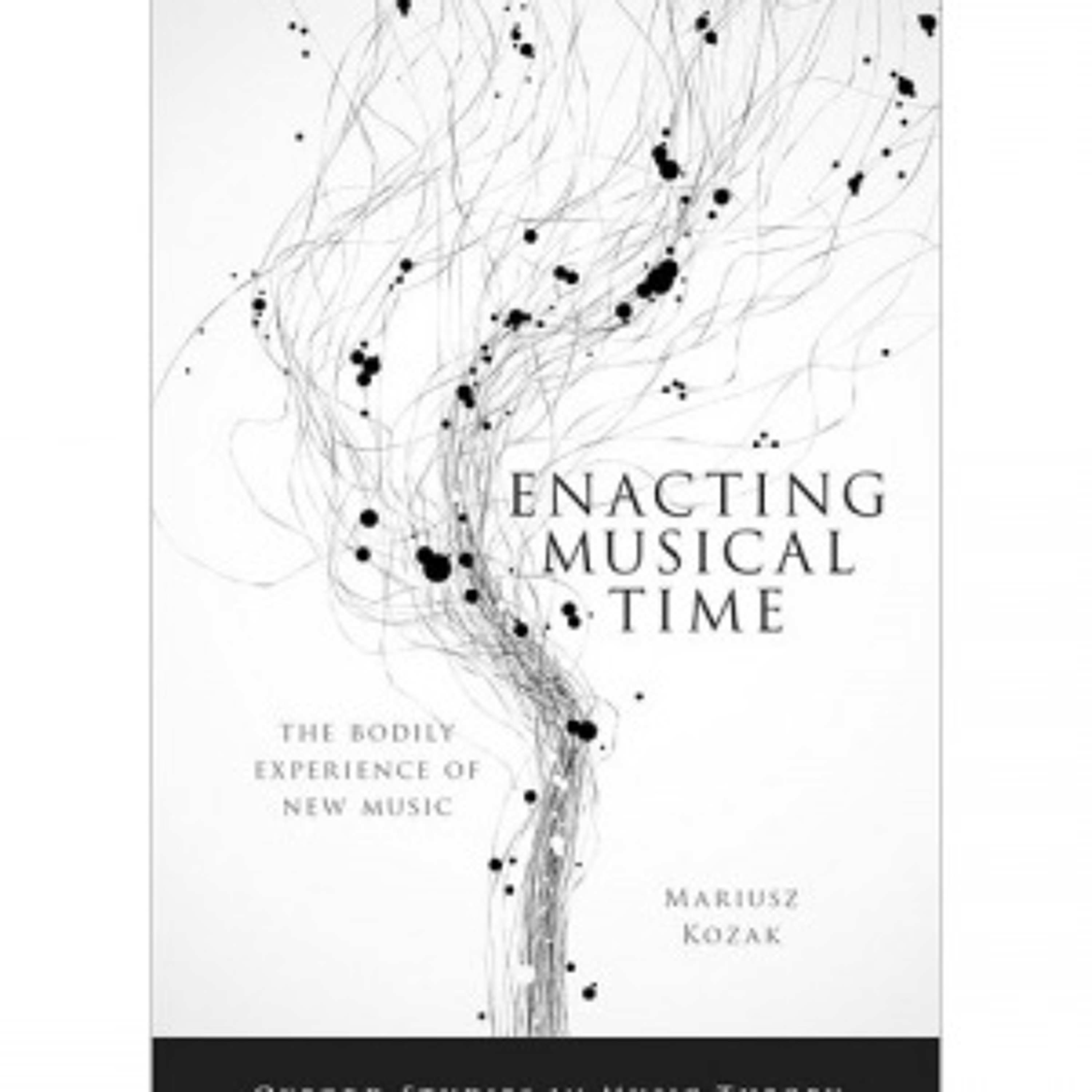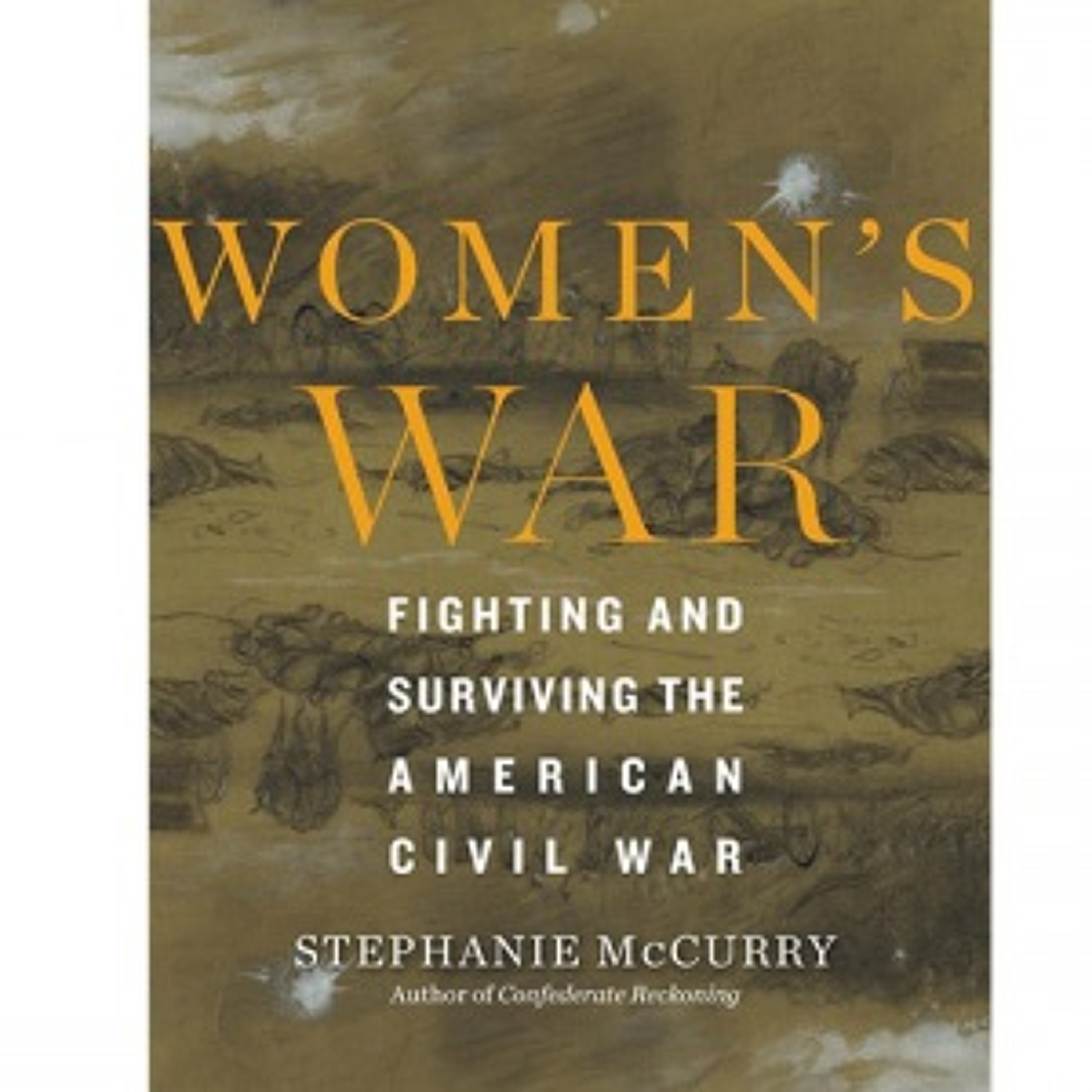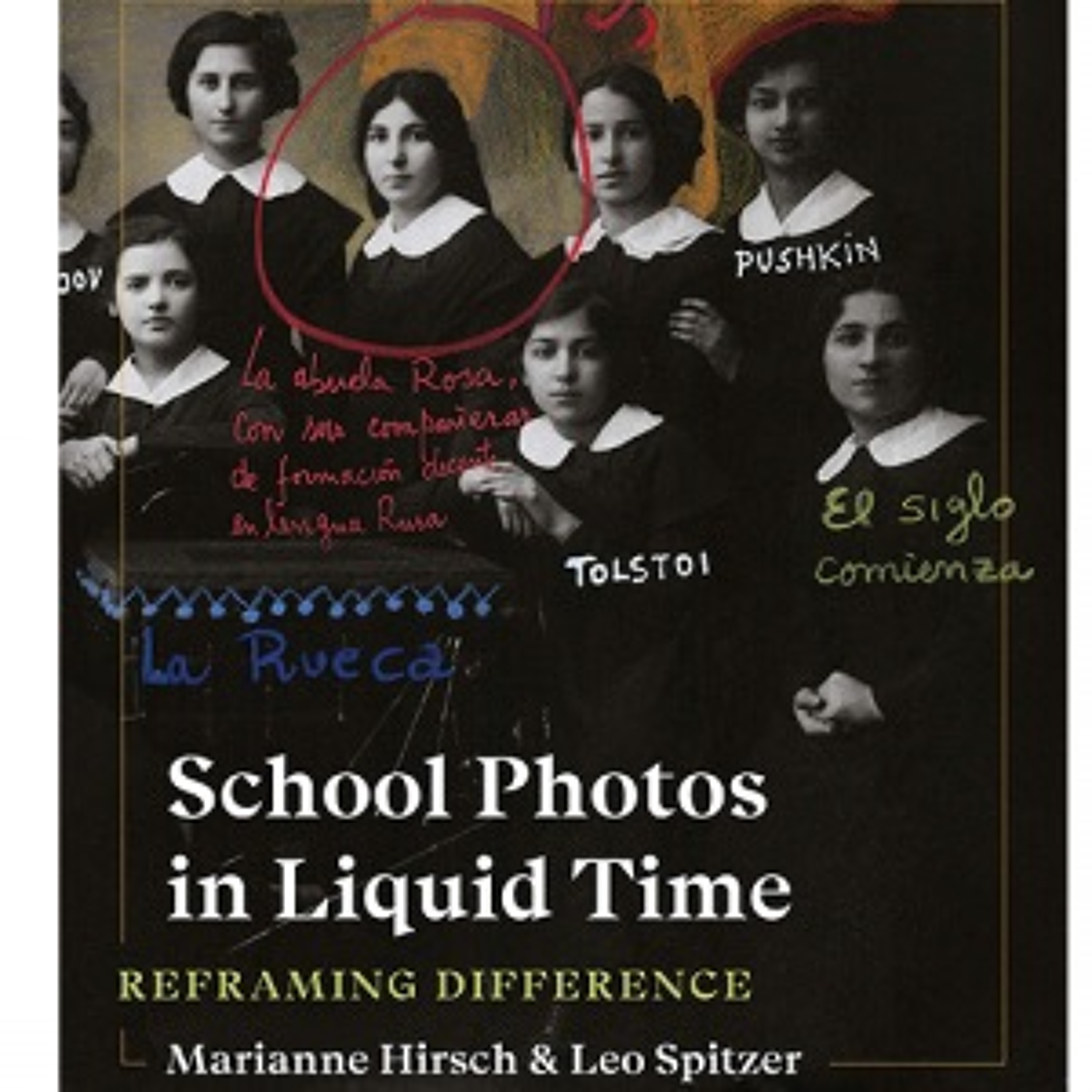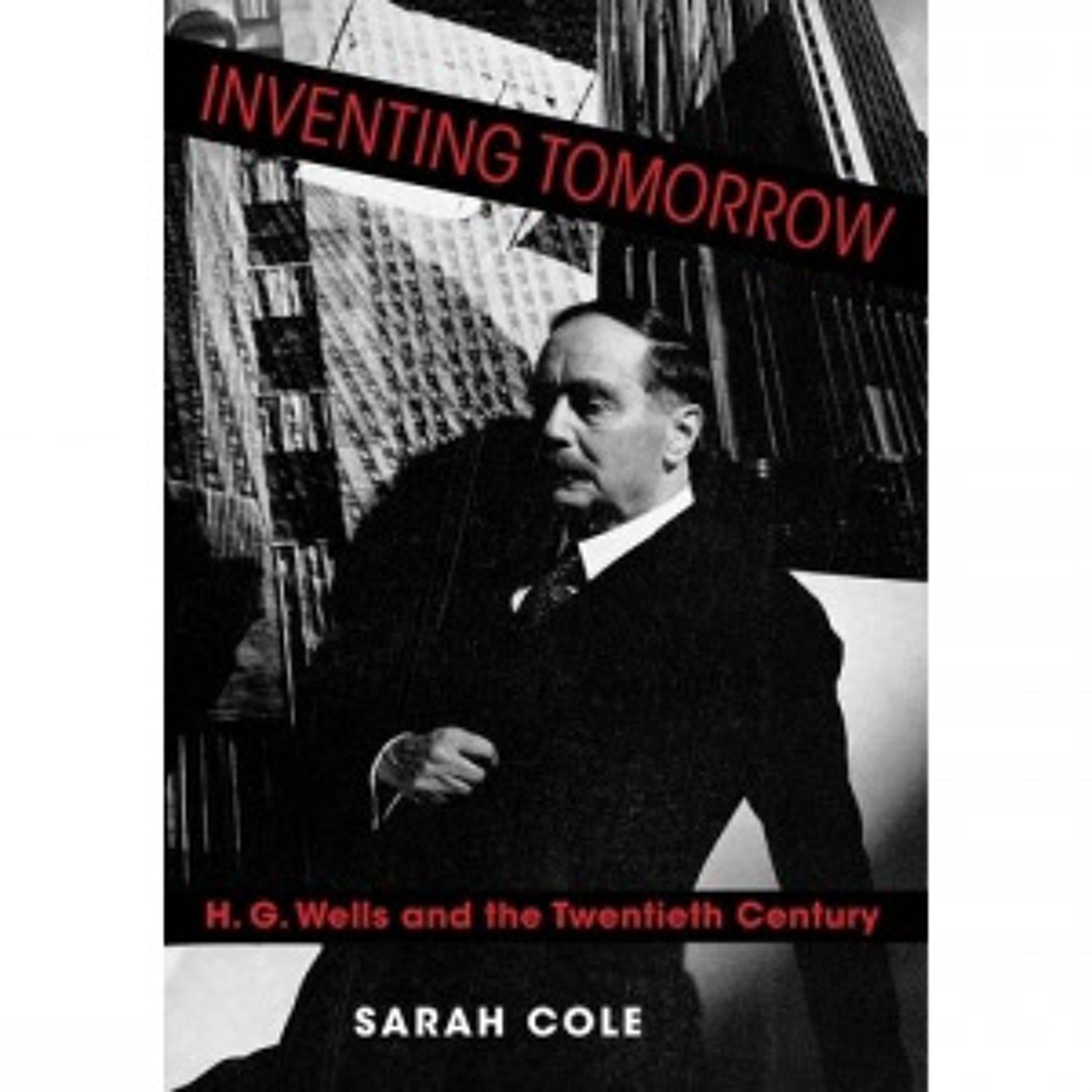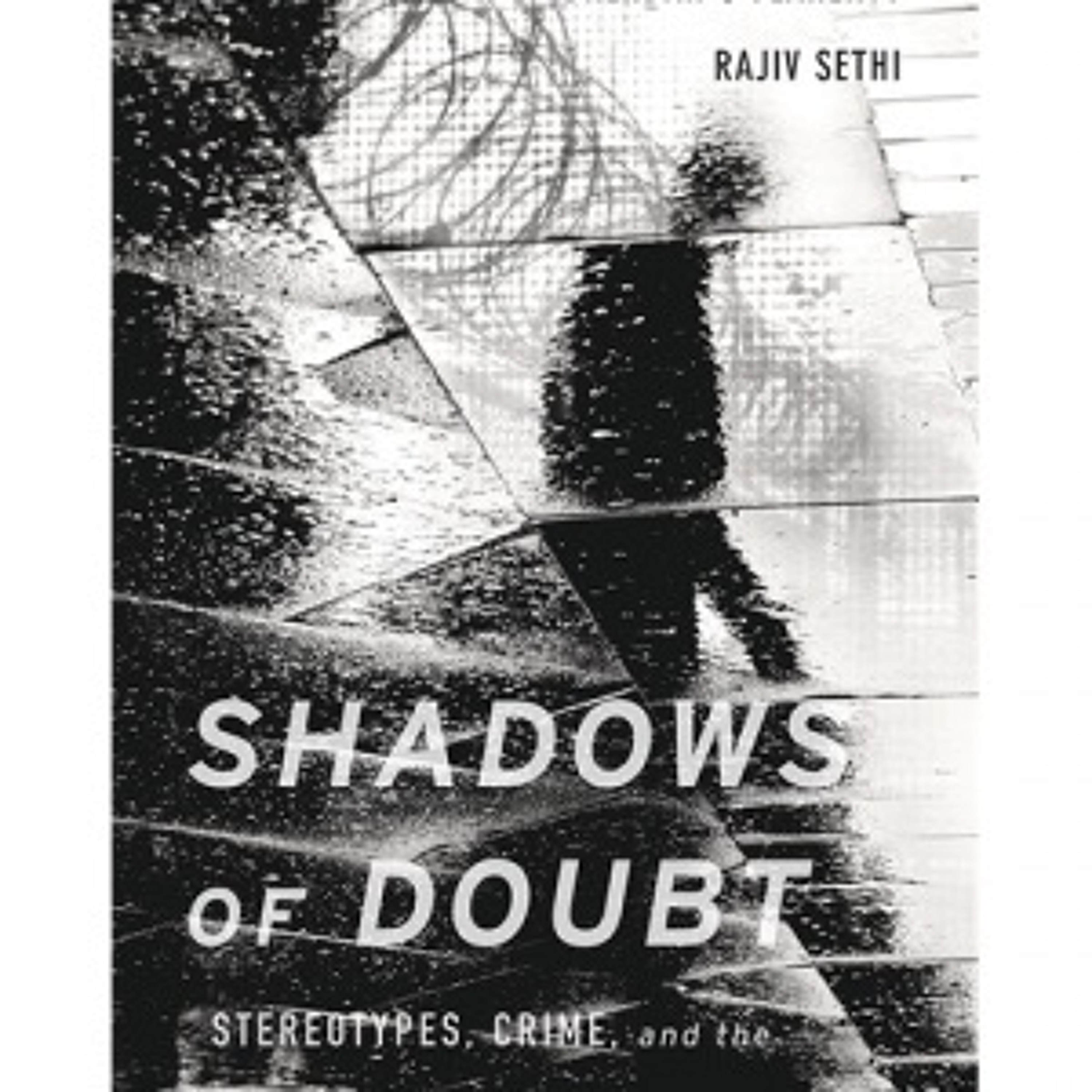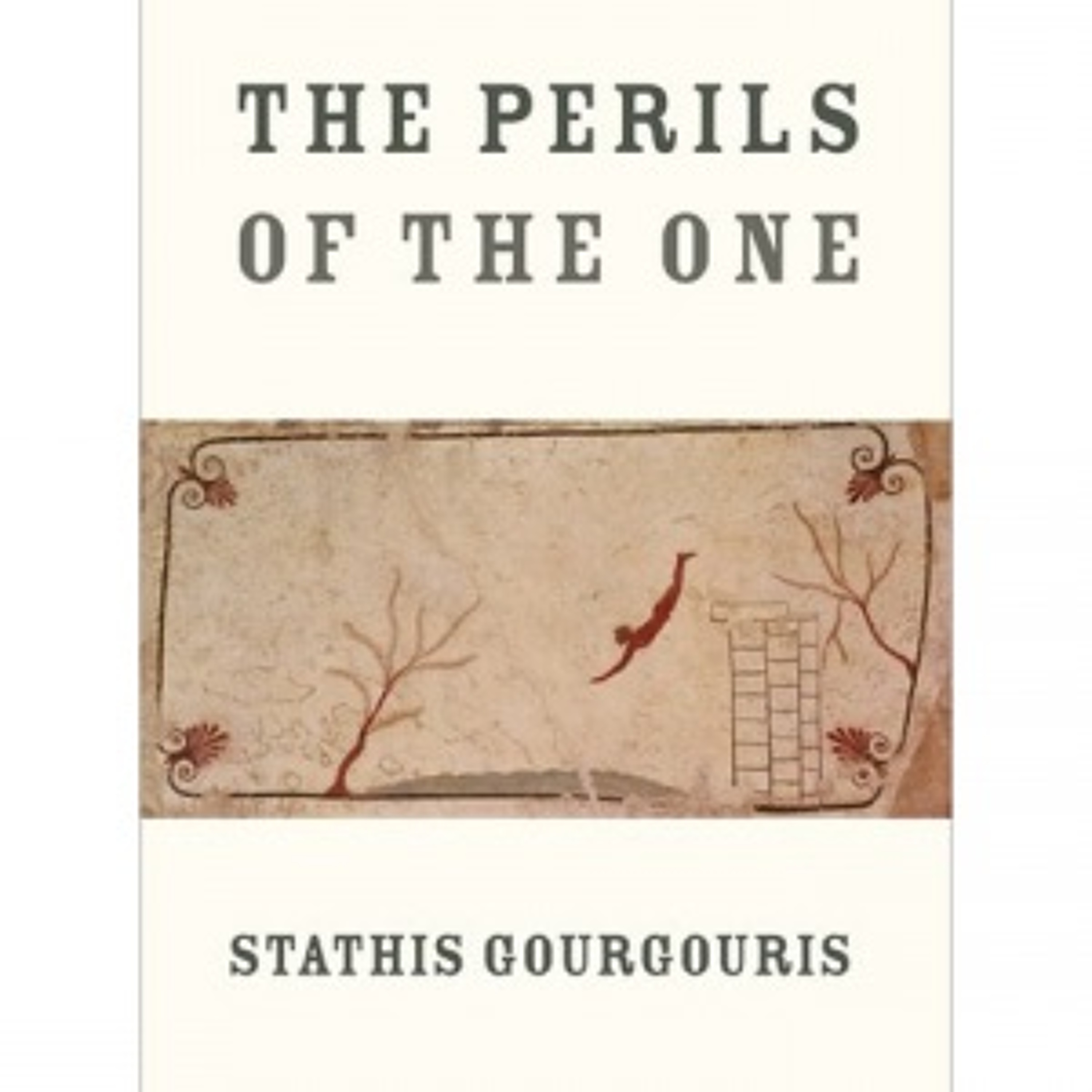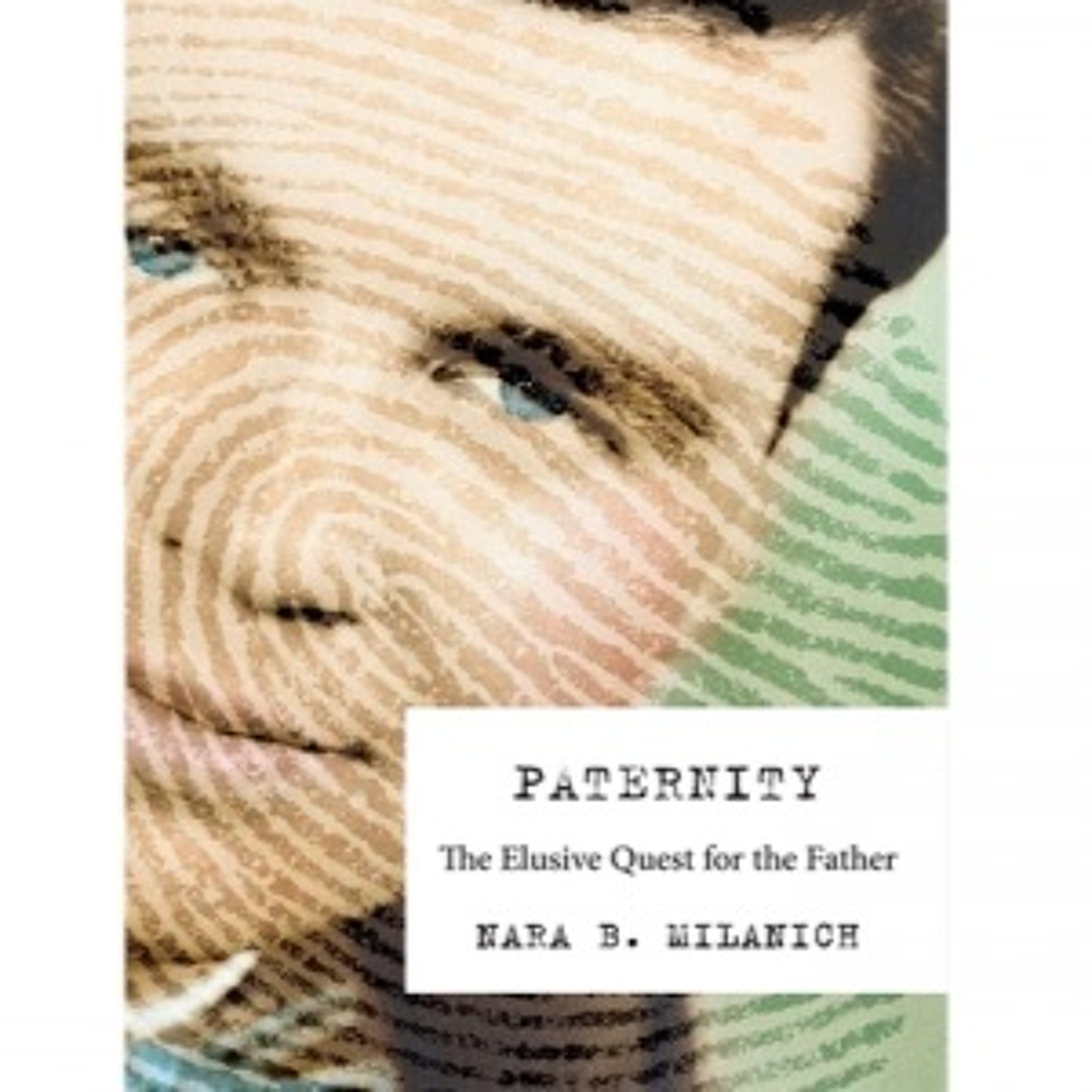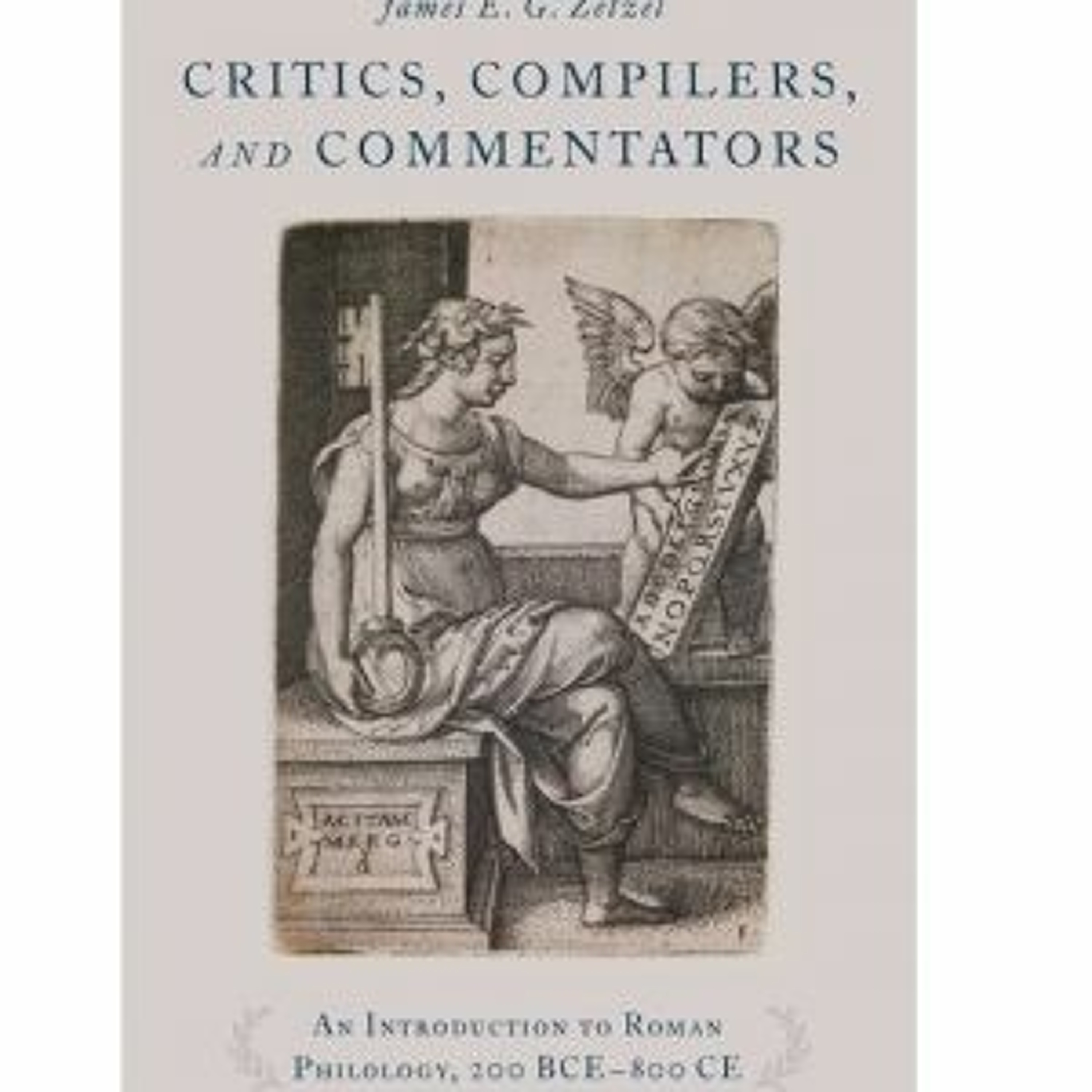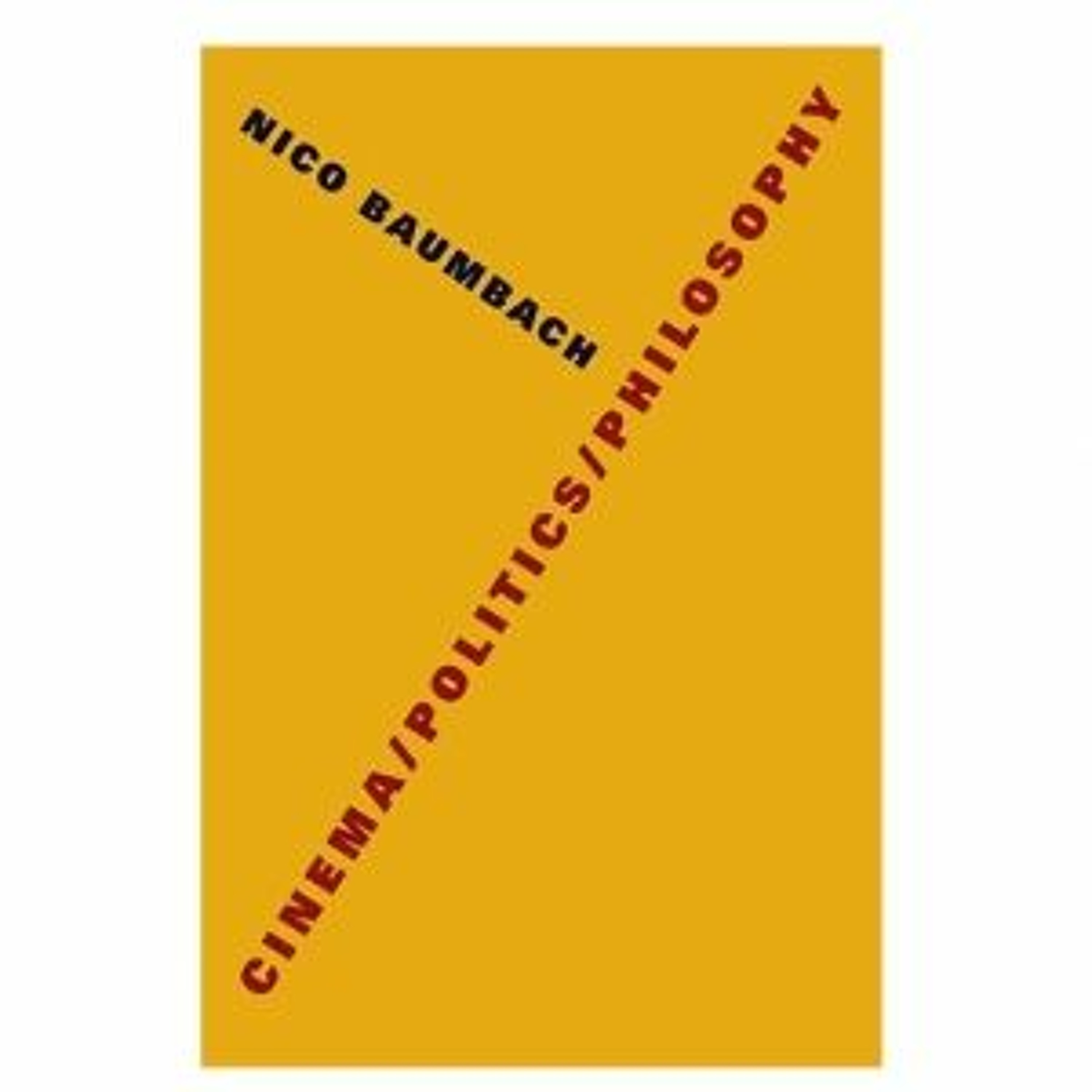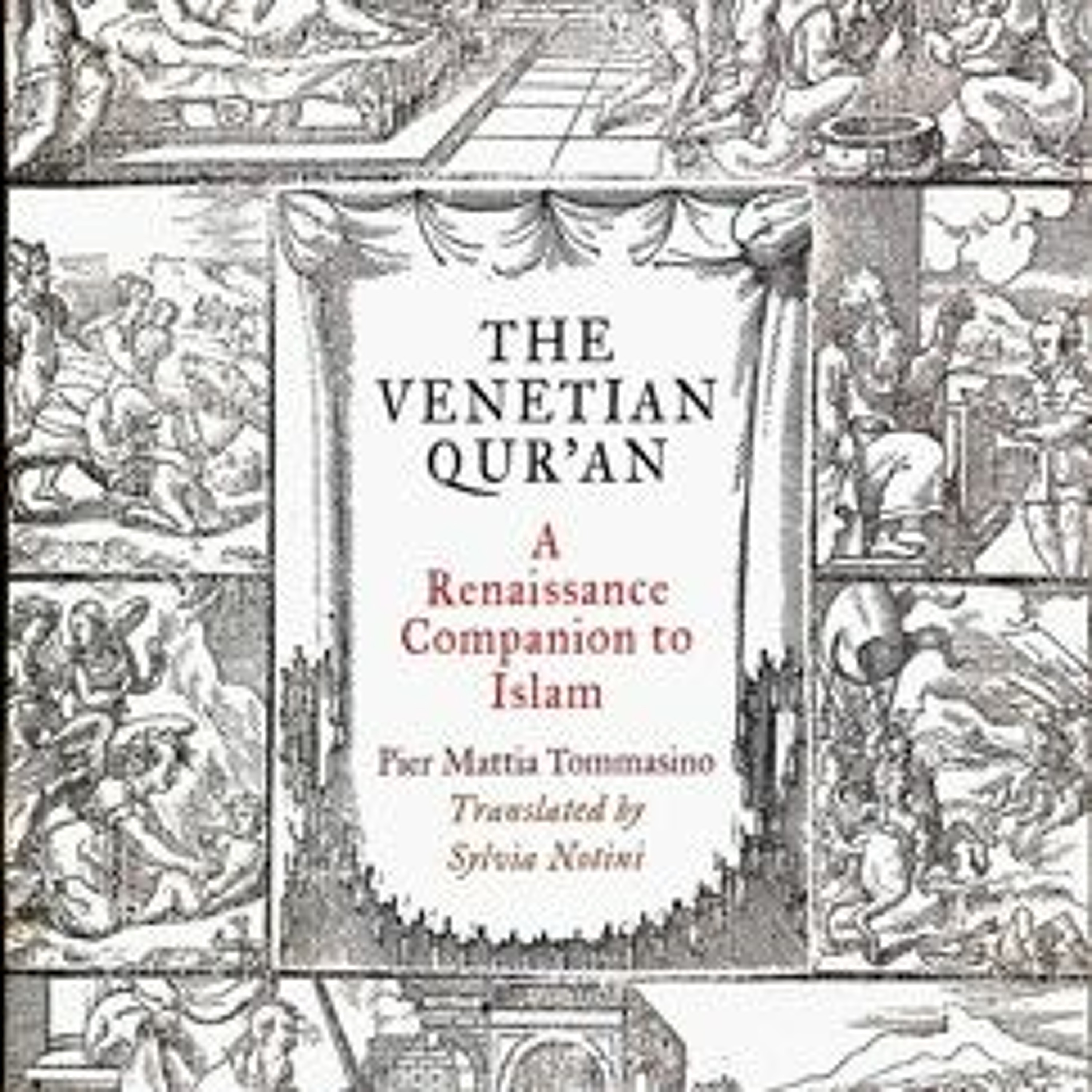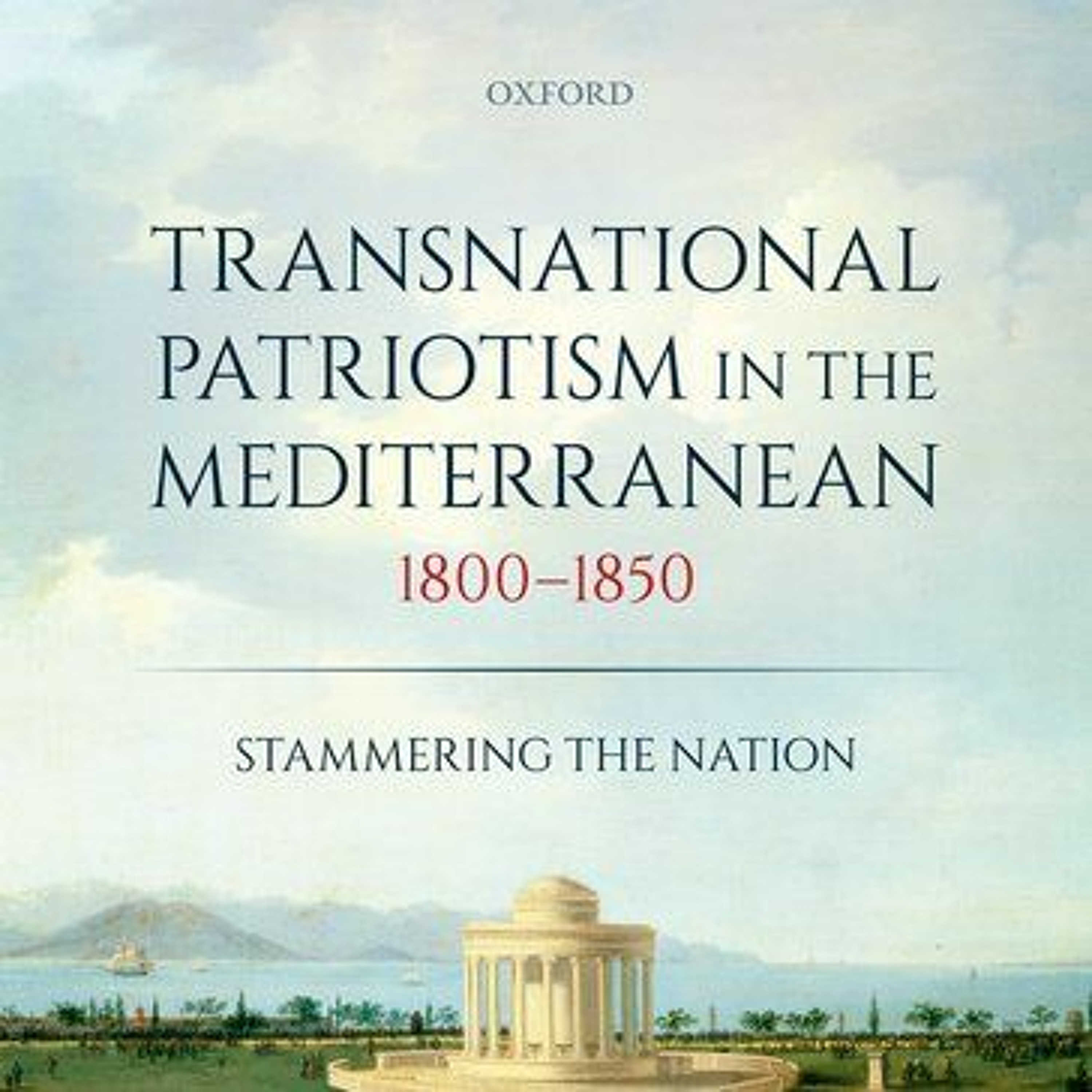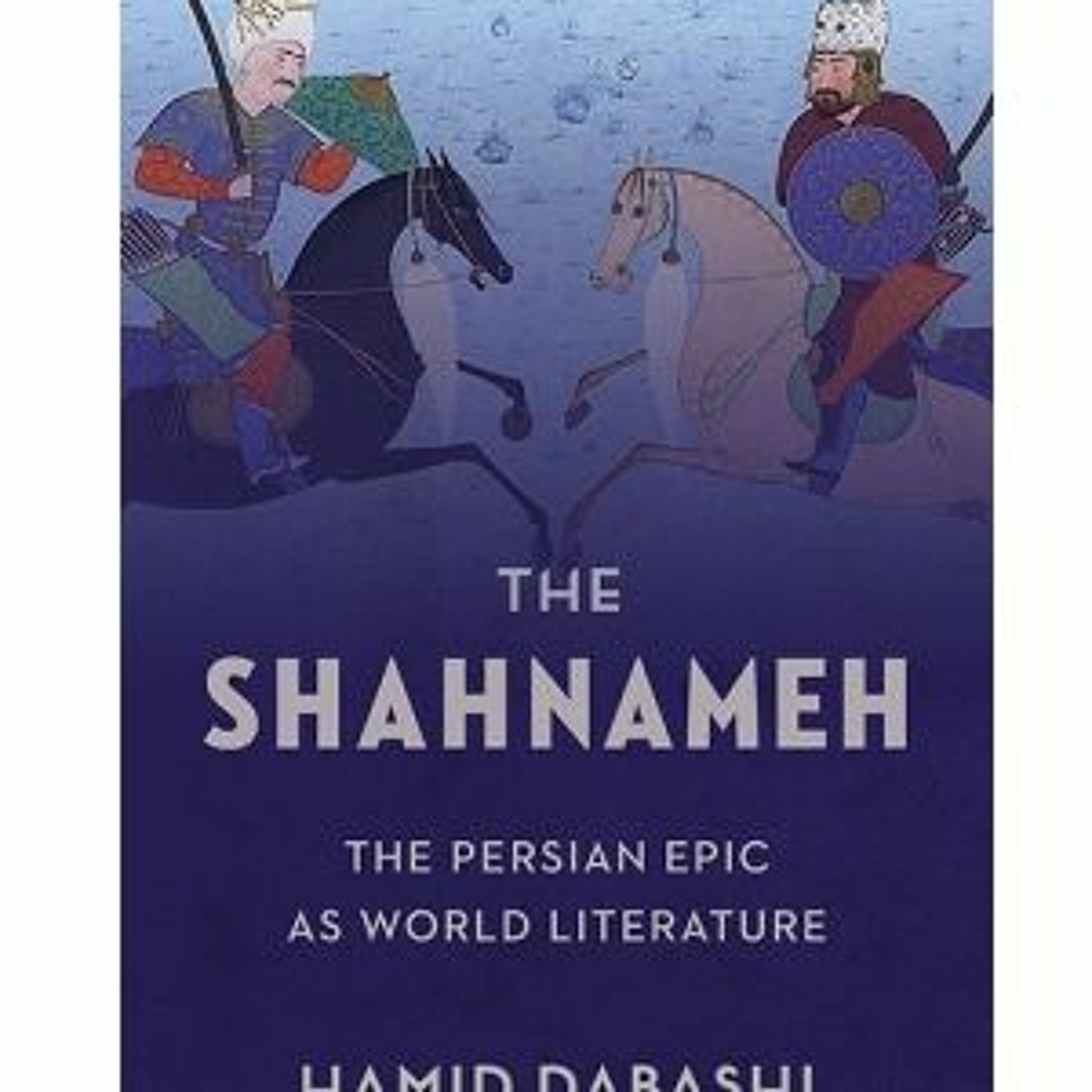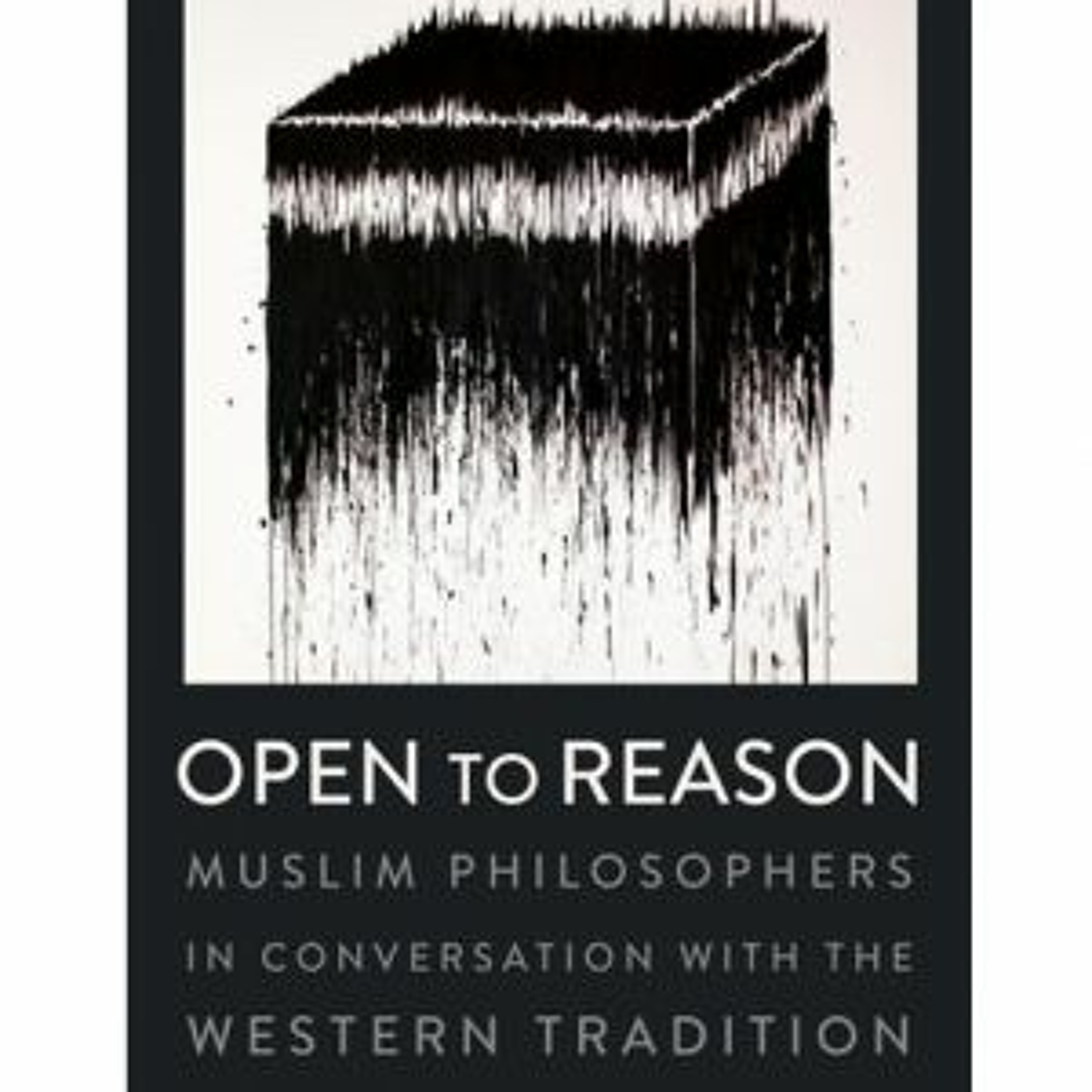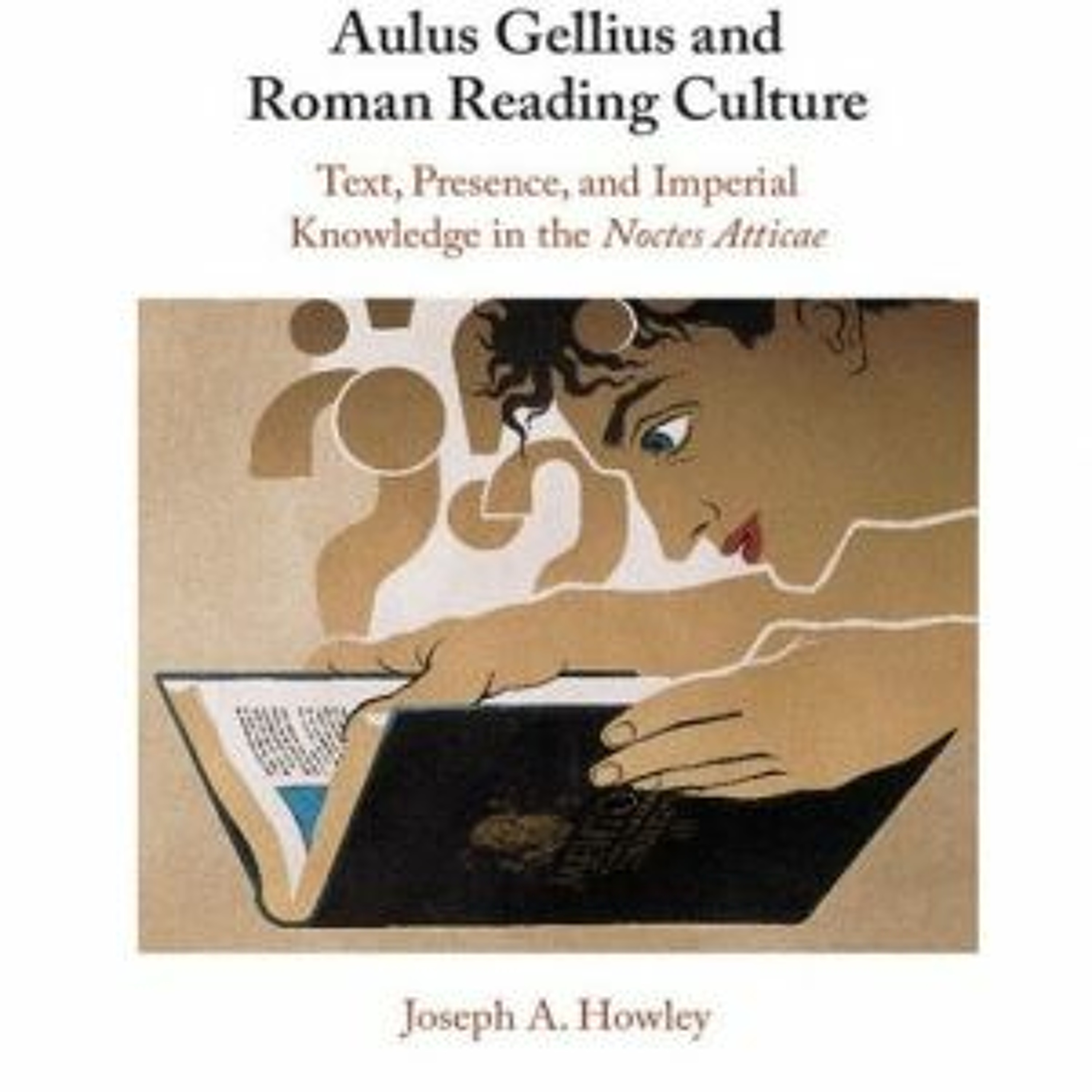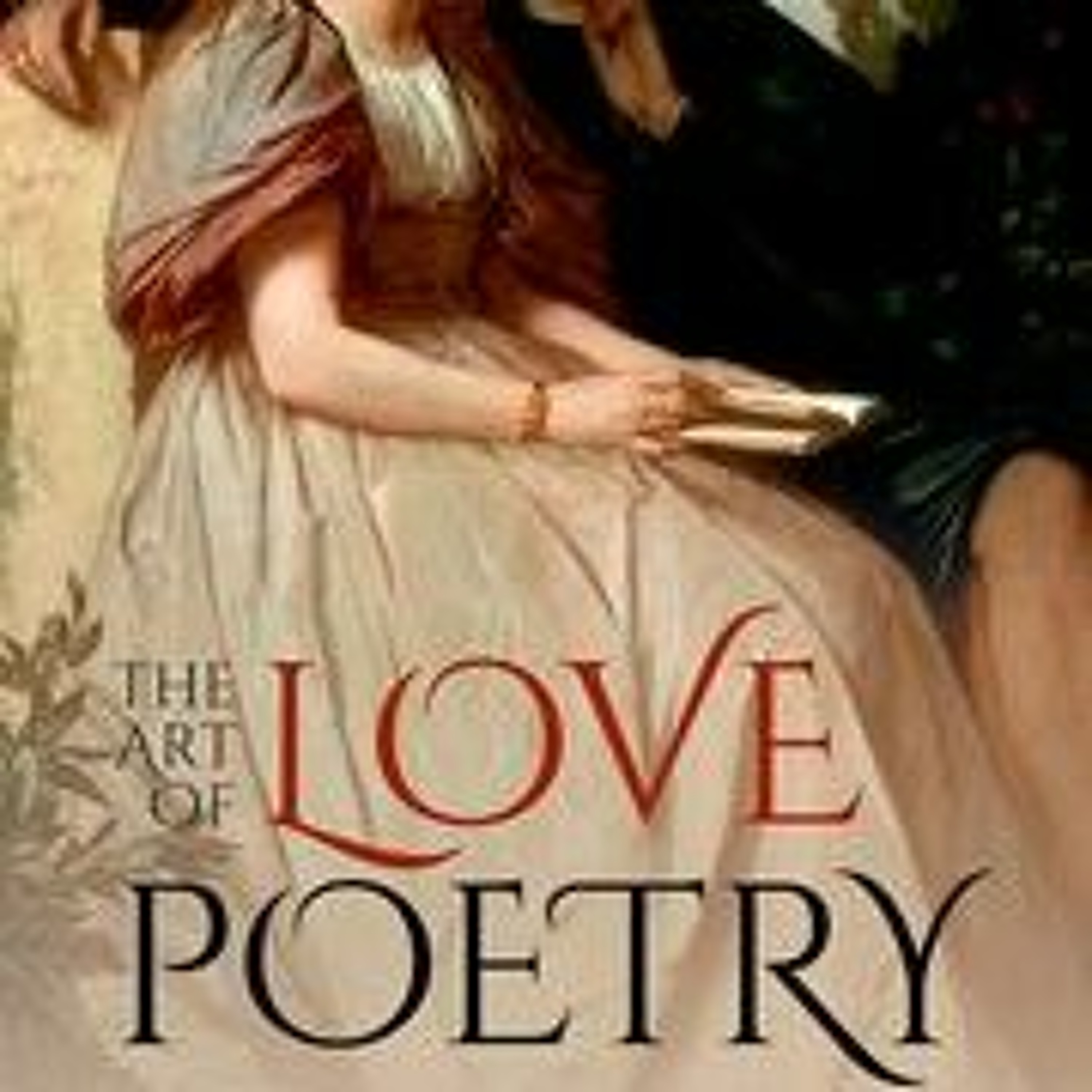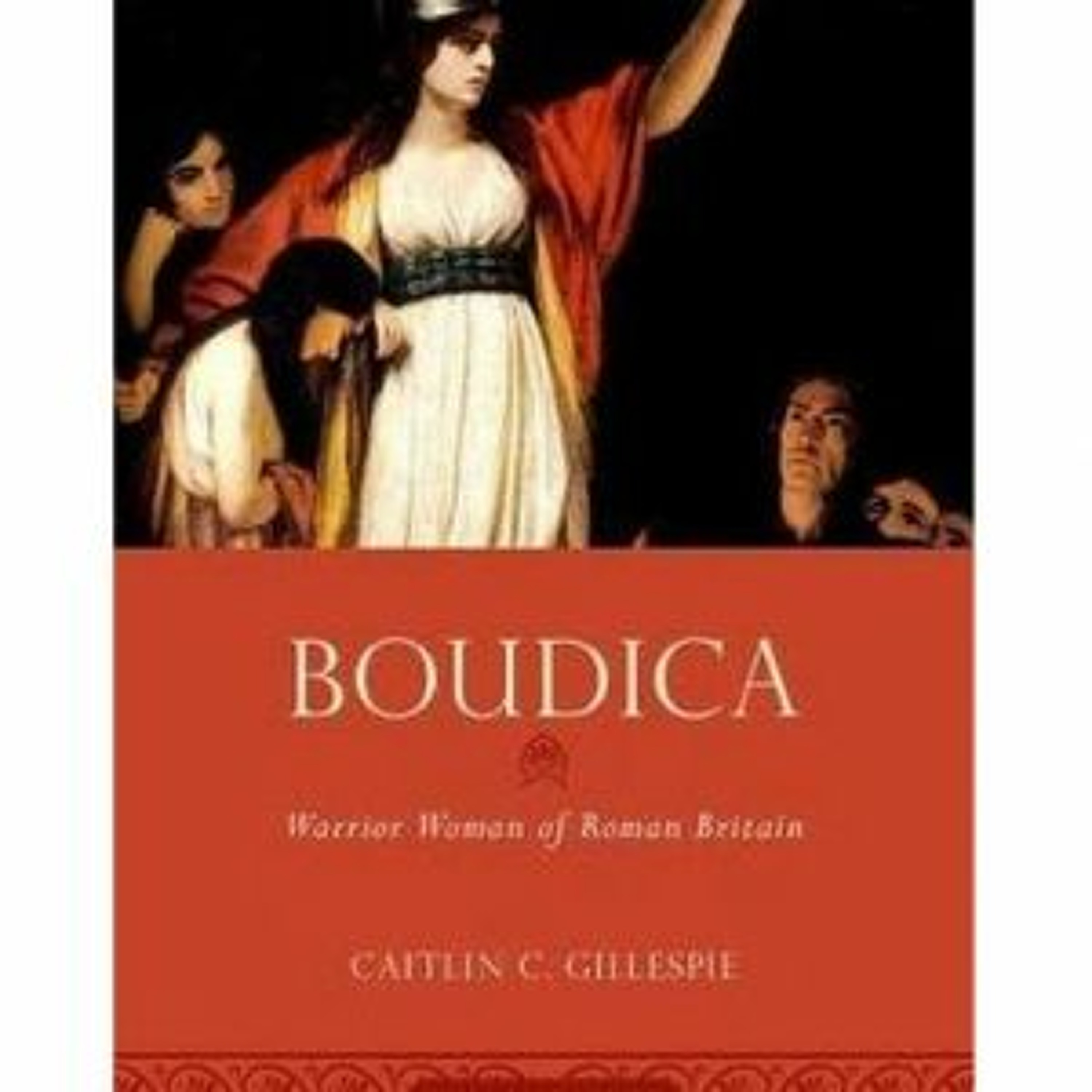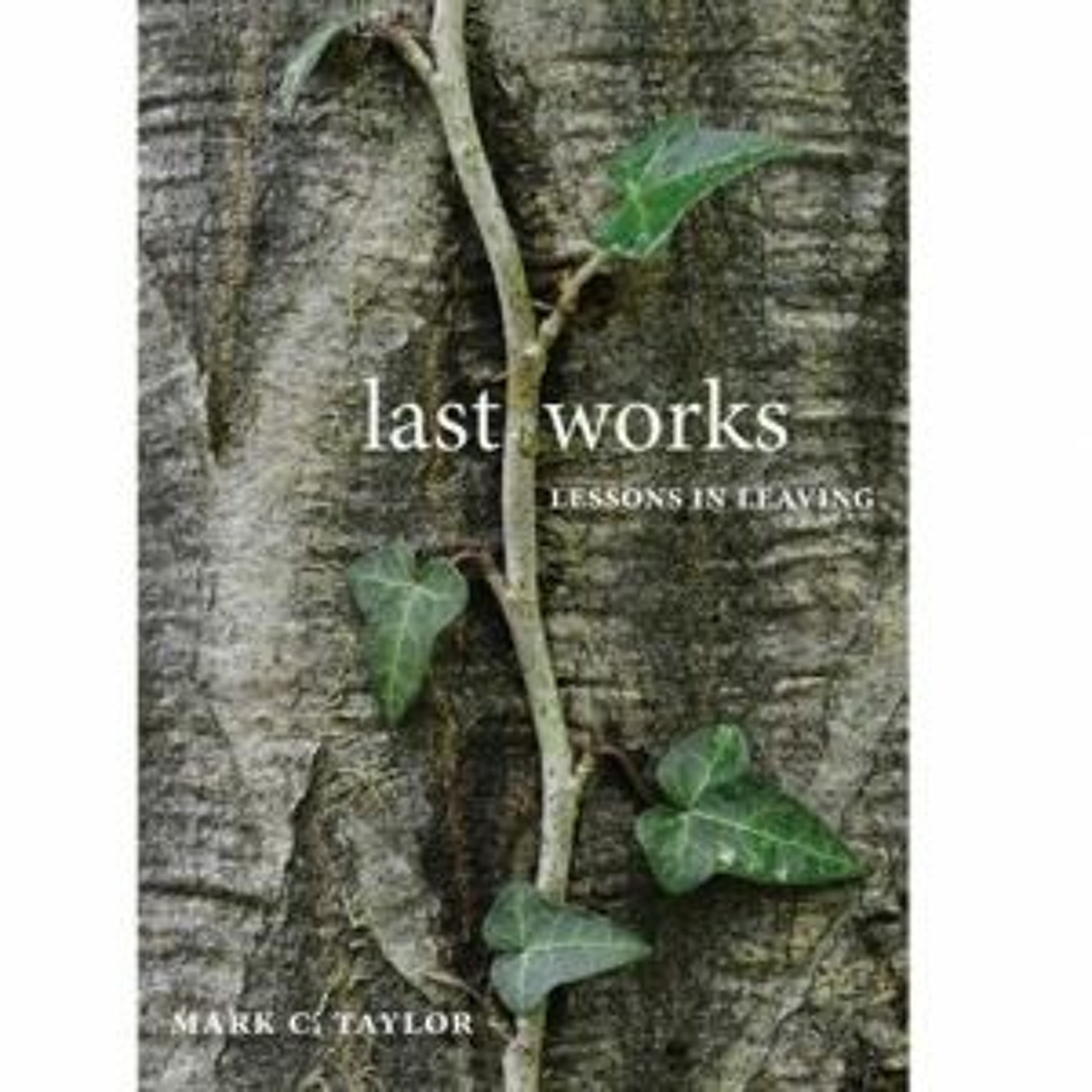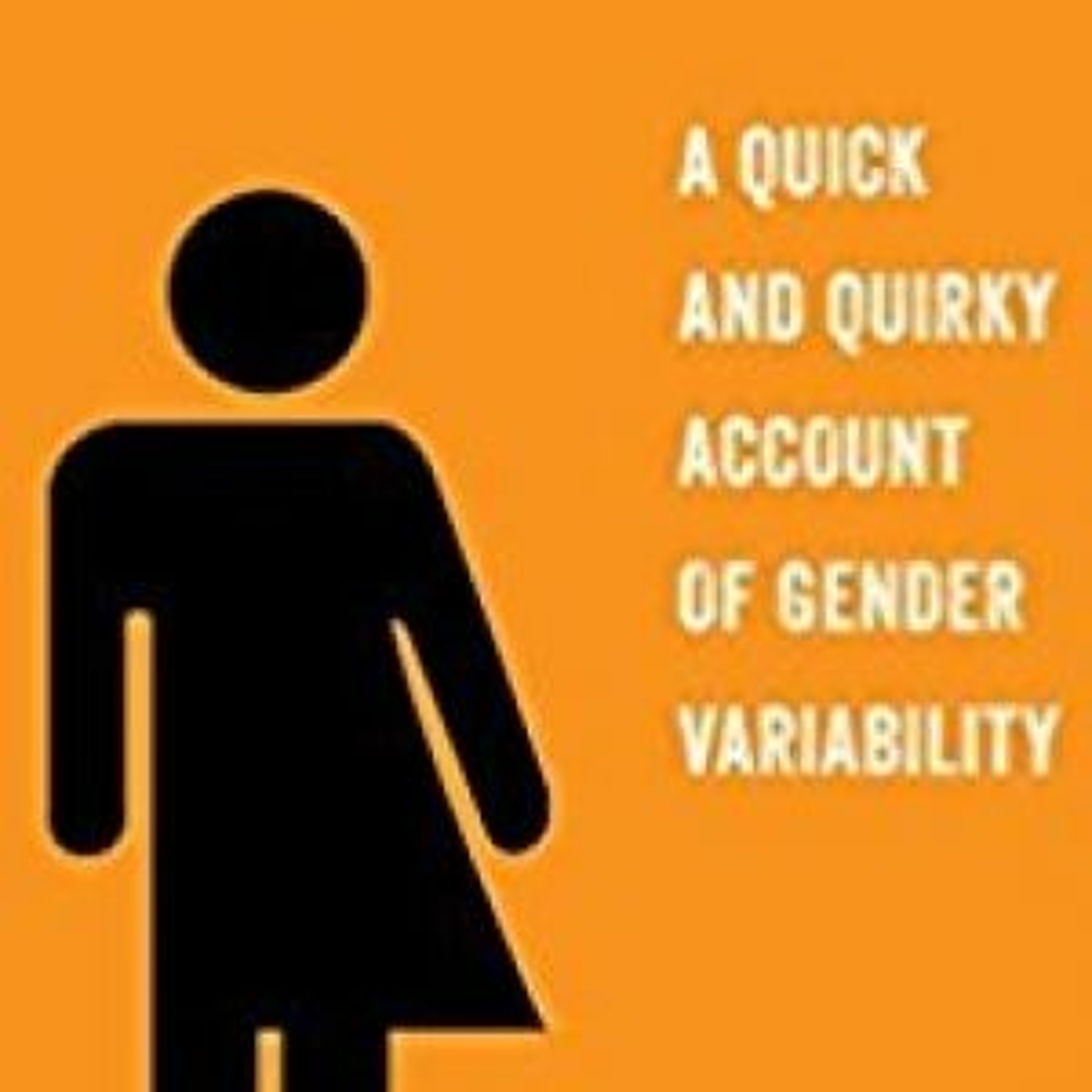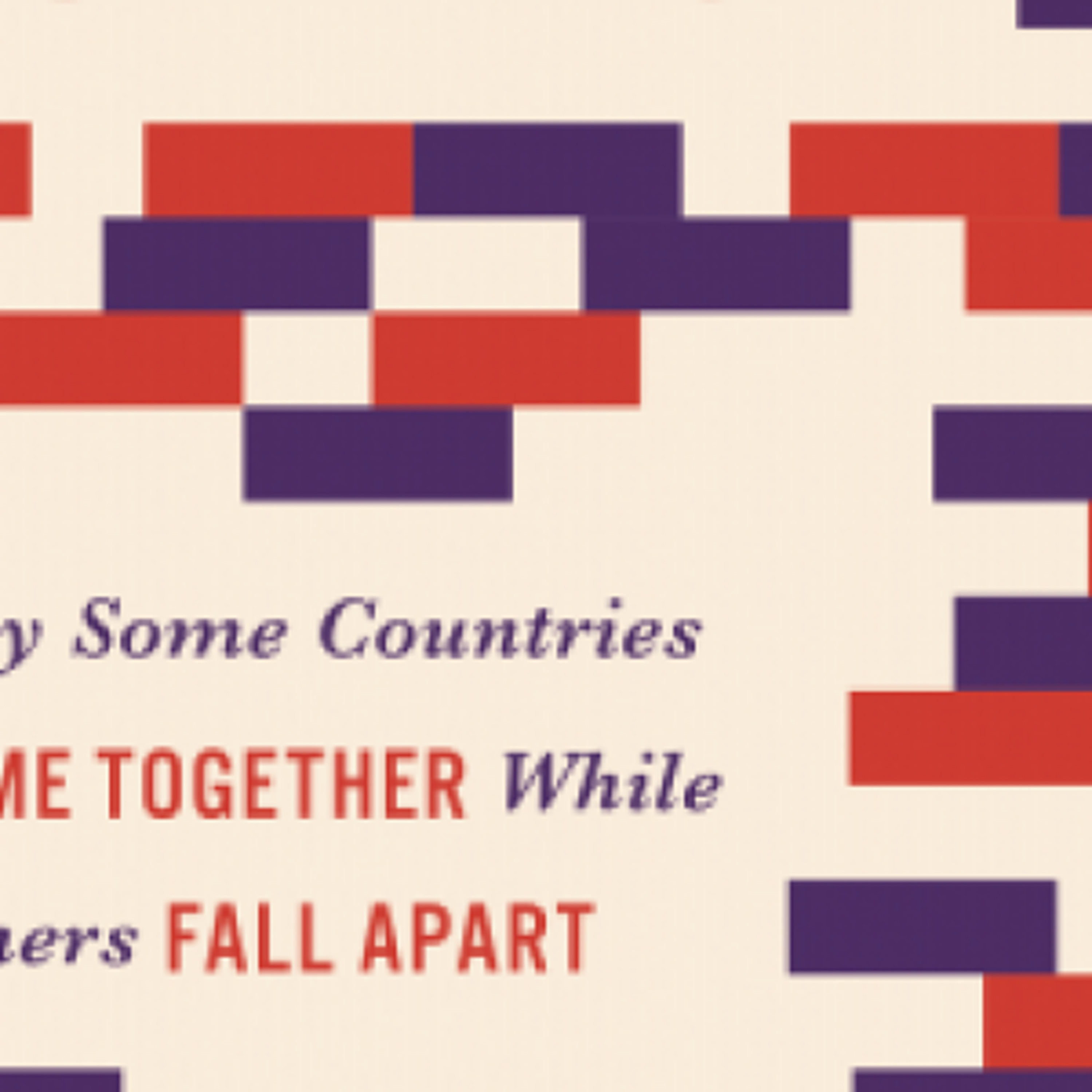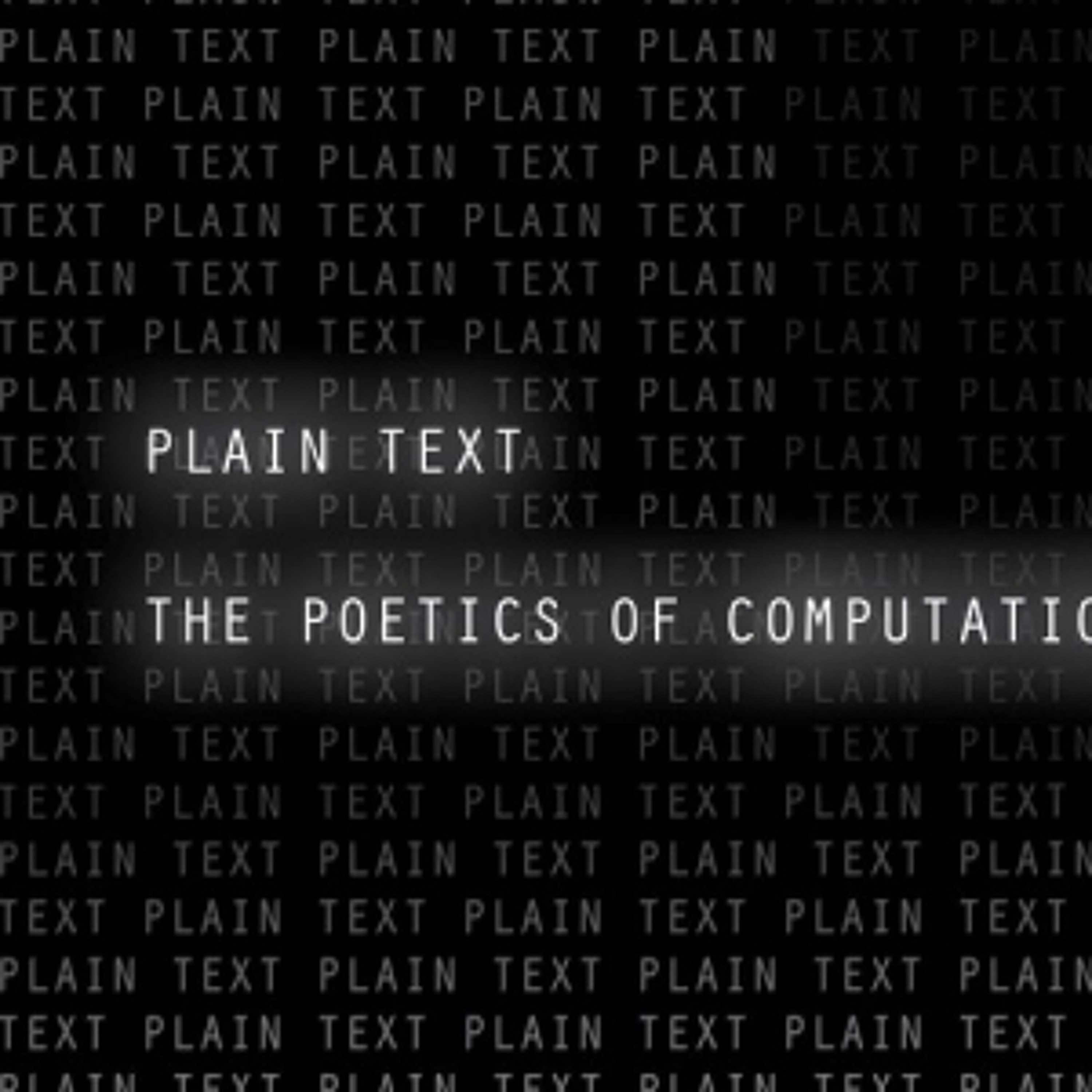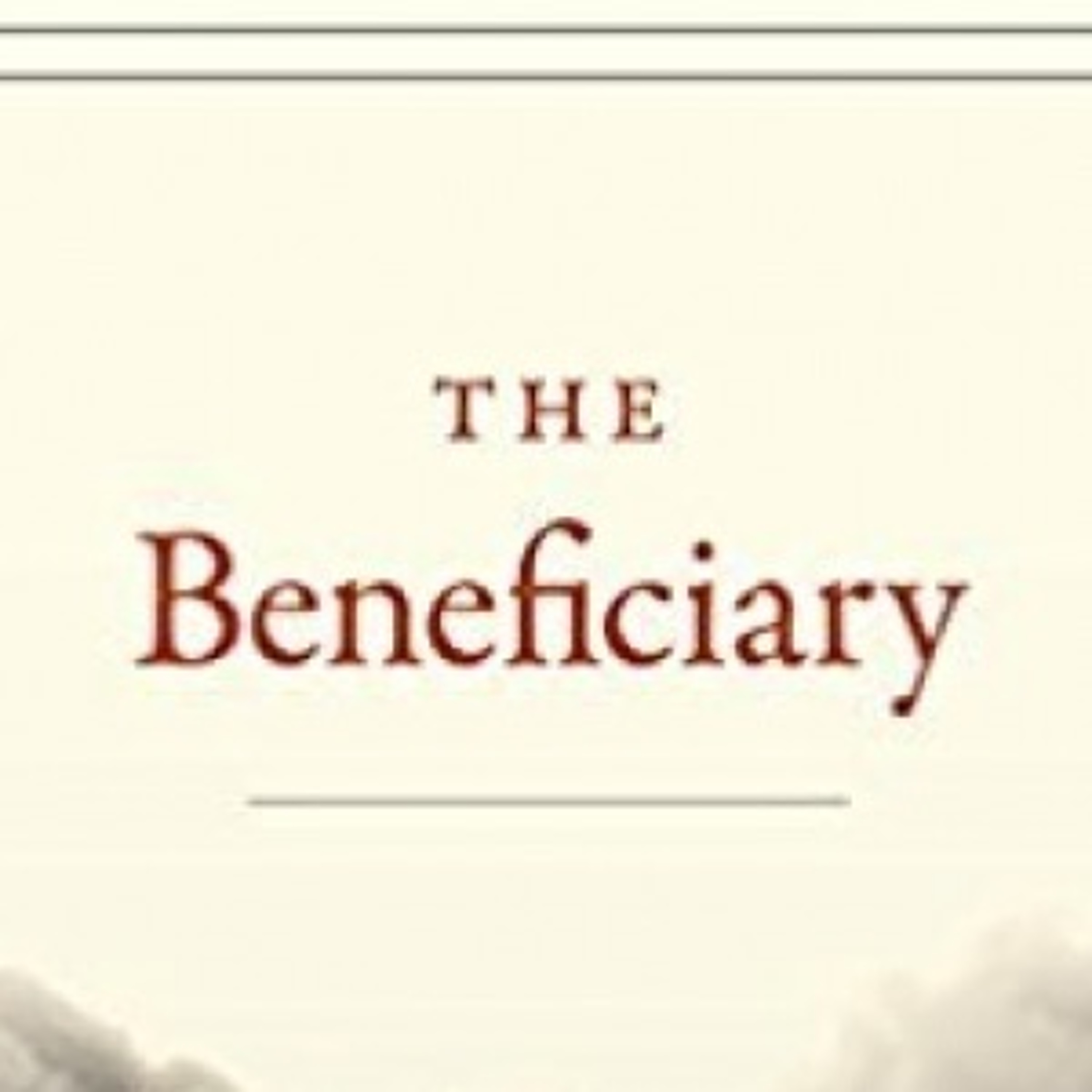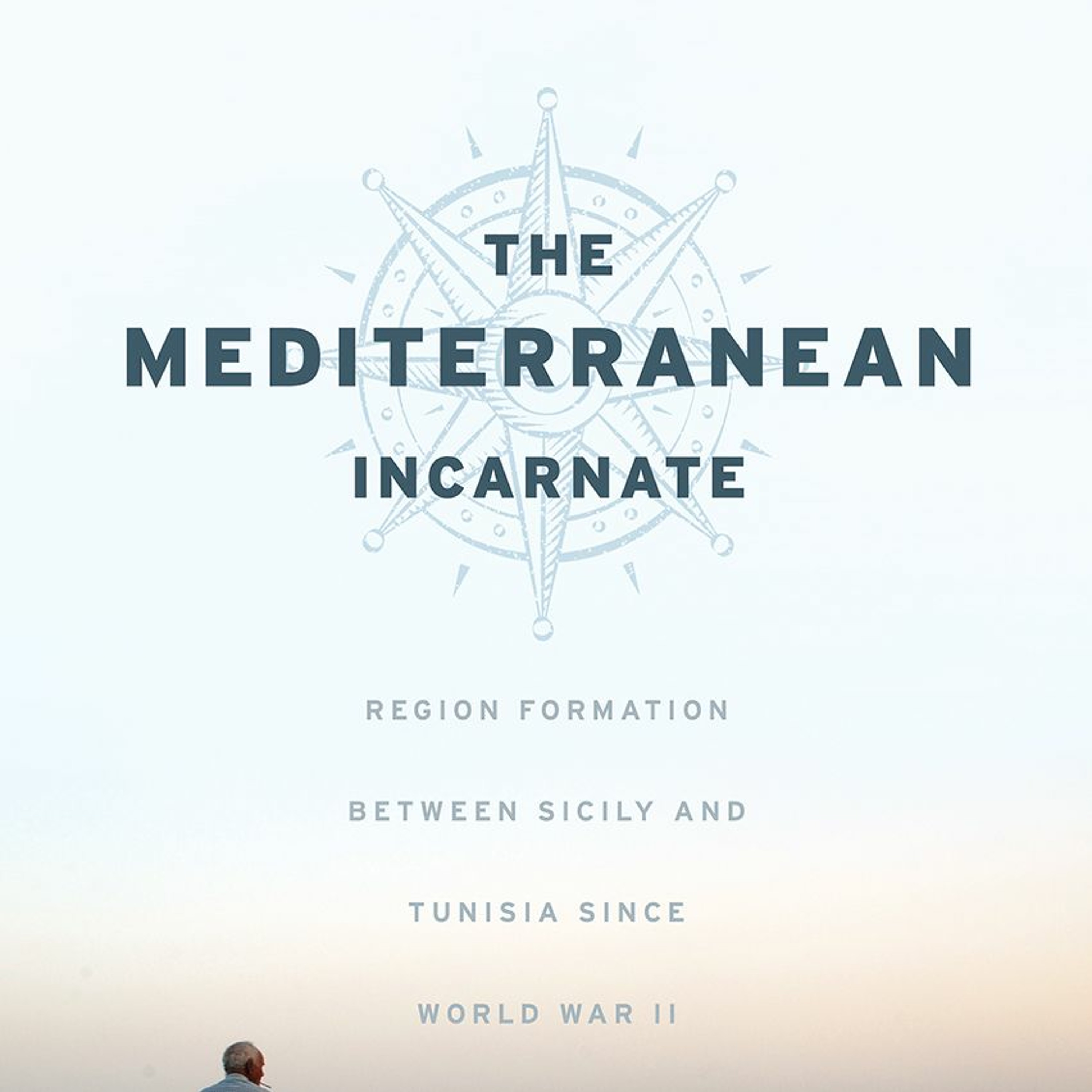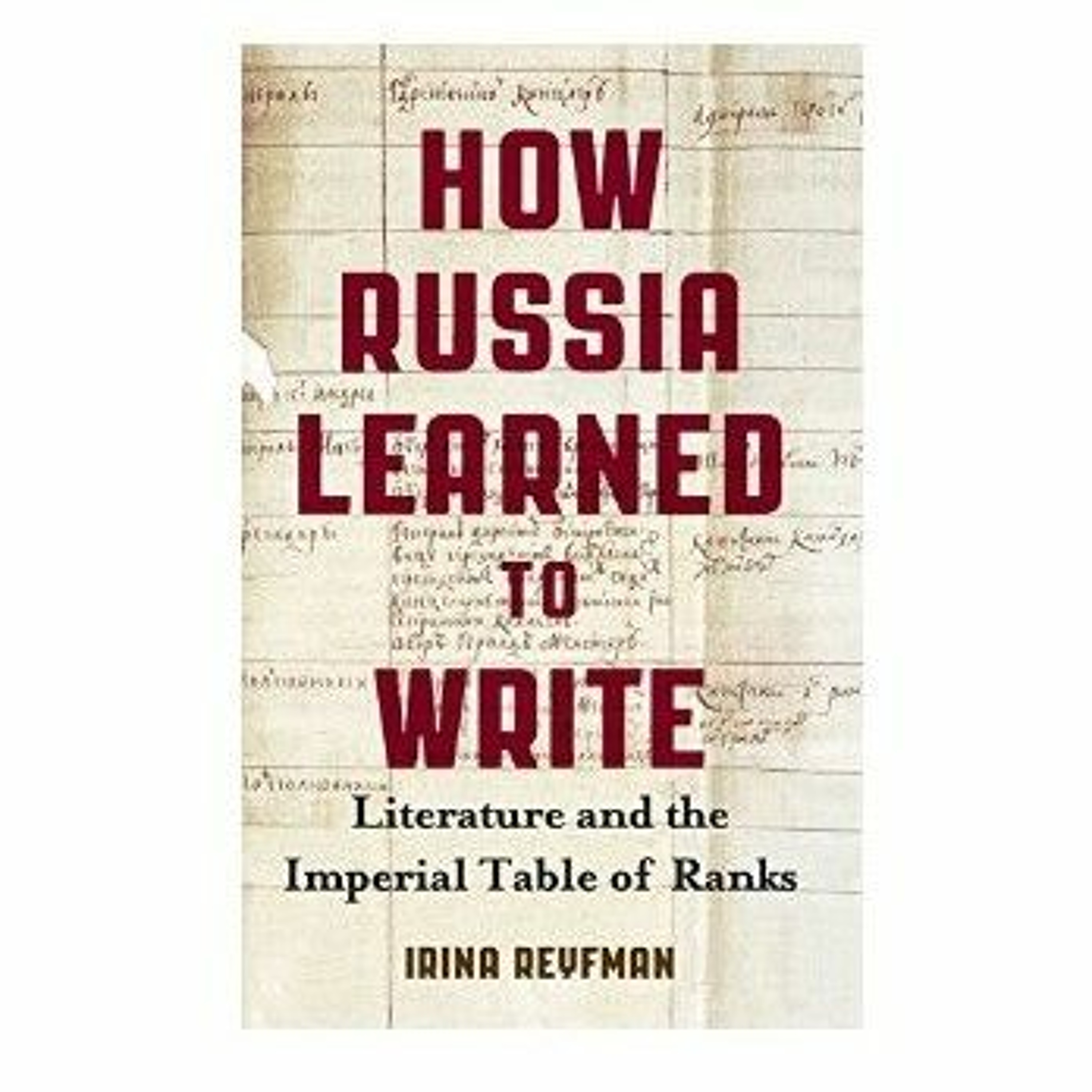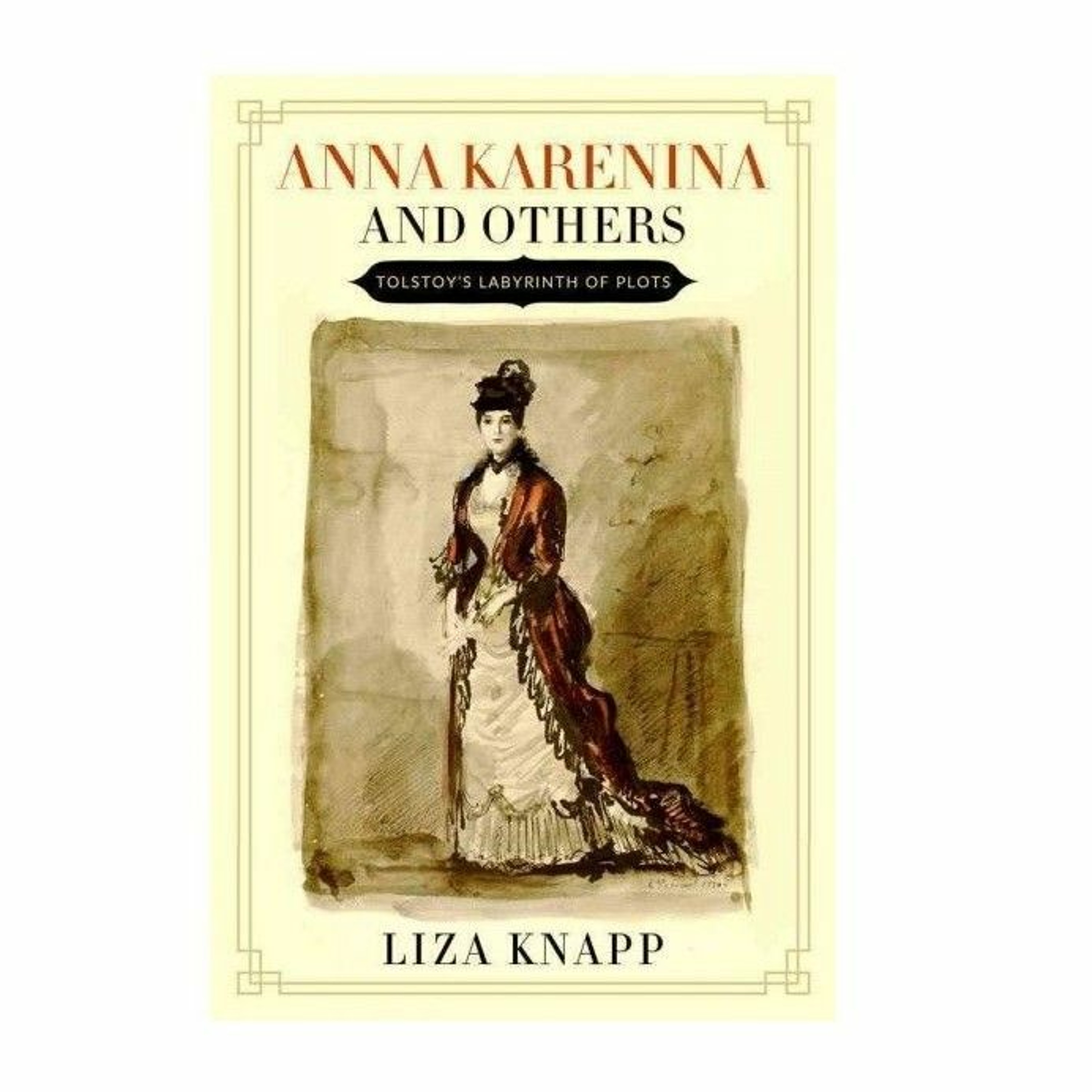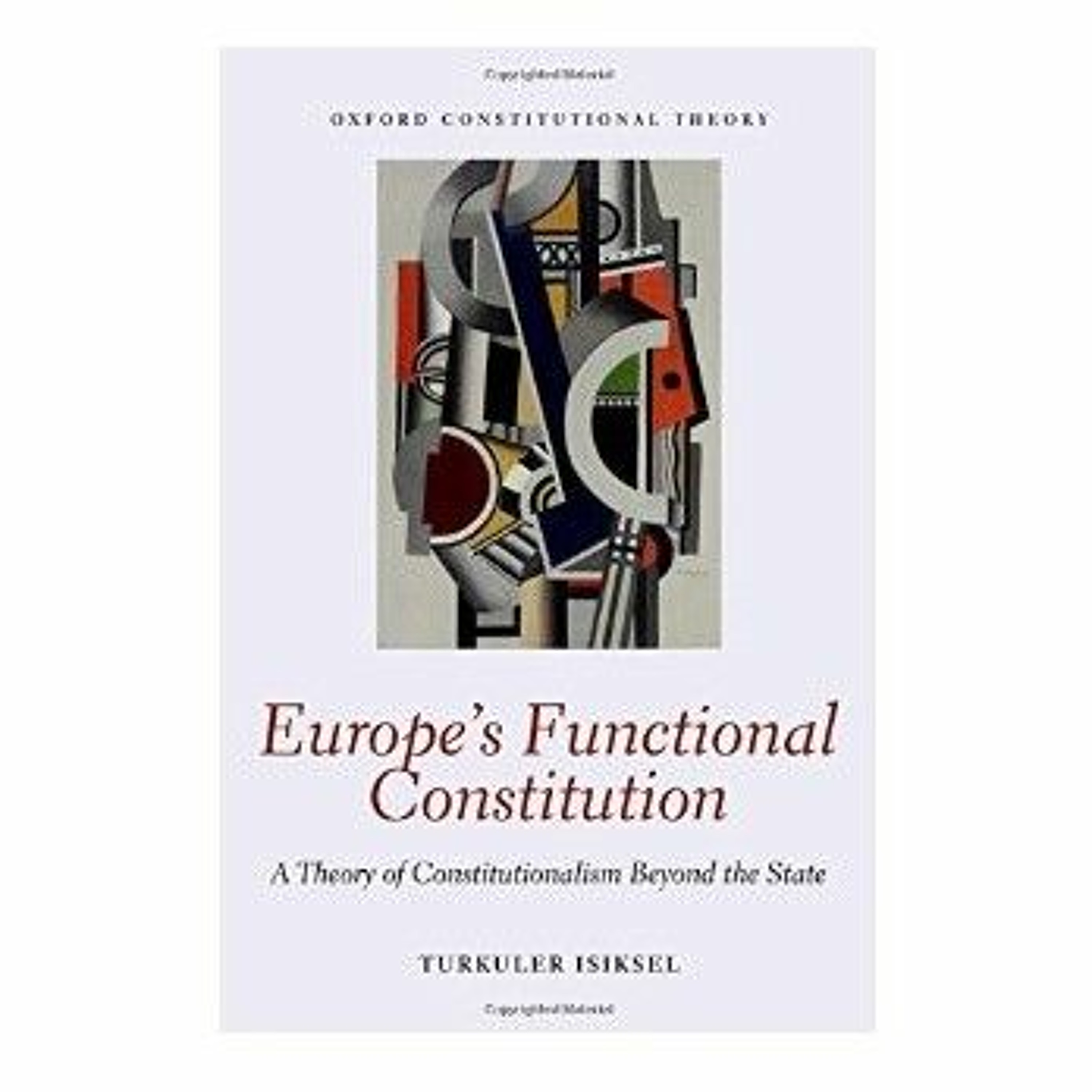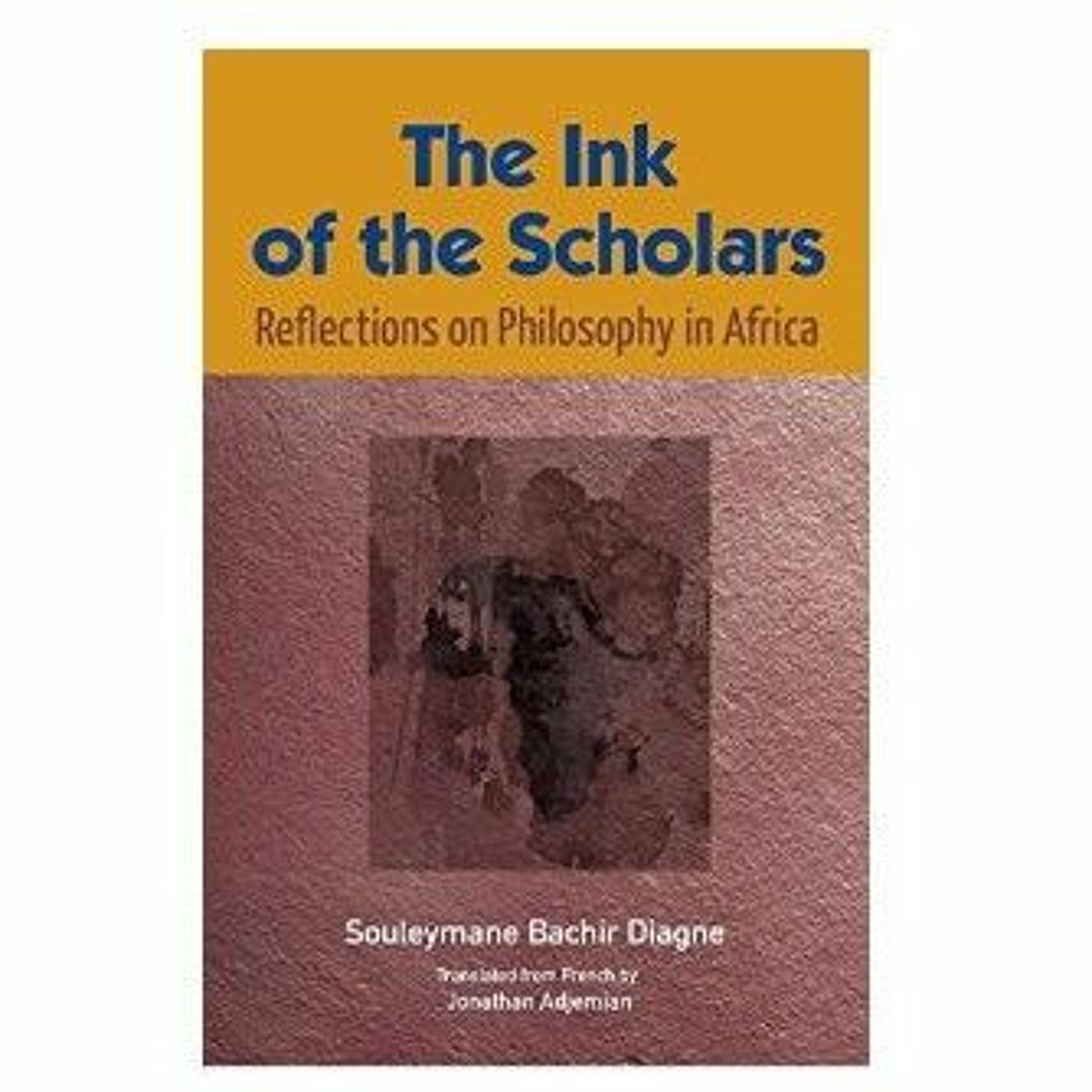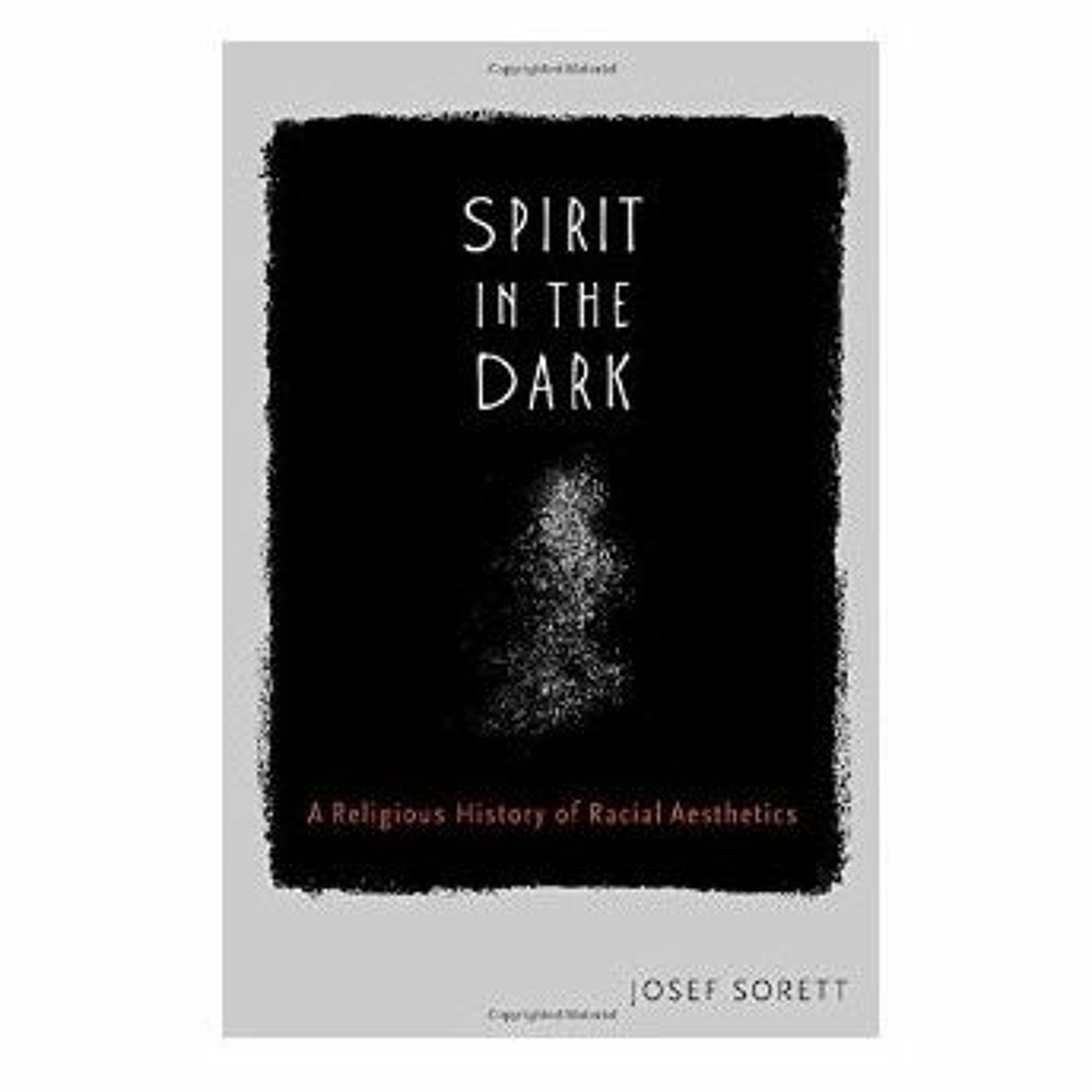Heyman Center for the Humanities at Columbia University Podcasts
Podcasts from Columbia University's The Society of Fellows and Heyman Center for the Humanities, where we feature talks with professors about their recent work, publications, novels and more. Hear them read from their work, and also responses from other professors in their fields. These episodes are hosted by Olivia Branscum and Timothy Lundy. We also feature The Trilling Tapes. In this podcast series, we mine the recorded archives--the Trilling Tapes--to uncover and contextualize more than forty years of exceptional critical thought.
Society & Culture 62 rész Podcasts from Columbia University's The Society o…
Kaiama L. Glover's A Regarded Self: Caribbean Womanhood and the Ethics of Disorderly Being
25 perc
62. rész
Hosted by Olivia Branscum and Timothy Lundy, this week's episode features Kaiama L. Glover's A Regarded Self: Caribbean Womanhood and the Ethics of Disorderly Being.
In A Regarded Self Kaiama L. Glover champions unruly female protagonists who adamantly refuse the constraints of coercive communities. Reading novels by Marie Chauvet, Maryse Condé, René Depestre, Marlon James, and Jamaica Kincaid, Glover shows how these authors' women characters enact practices of freedom that privilege the self in ways unmediated and unrestricted by group affiliation. The women of these texts offend, disturb, and reorder the world around them. They challenge the primacy of the community over the individual and propose provocative forms of subjecthood. Highlighting the style and the stakes of these women's radical ethics of self-regard, Glover reframes Caribbean literary studies in ways that critique the moral principles, politicized perspectives, and established critical frameworks that so often govern contemporary reading practices. She asks readers and critics of postcolonial literature to question their own gendered expectations and to embrace less constrictive modes of theorization.
Dustin Stewart's Futures of Enlightenment Poetry
29 perc
61. rész
This book offers a revisionist account of poetry and embodiment from Milton to Romanticism. Scholars have made much of the period's theories of matter, with some studies equating the eighteenth century's modernity with its materialism. Yet the Enlightenment in Britain also brought bold new arguments for the immateriality of spirit and evocative claims about an imminent spirit realm. Protestant religious writing was of two minds about futurity, swinging back and forth between patience for the resurrected body and desire for the released soul. This ancient pattern carried over, the book argues, into understandings of poetry as a modern devotional practice.
Jack Halberstam's Wild Things: The Disorder of Desire
35 perc
60. rész
In Wild Things Jack Halberstam offers an alternative history of sexuality by tracing the ways in which wildness has been associated with queerness and queer bodies throughout the twentieth century. Halberstam theorizes the wild as an unbounded and unpredictable space that offers sources of opposition to modernity's orderly impulses. Wildness illuminates the normative taxonomies of sexuality against which radical queer practice and politics operate. Throughout, Halberstam engages with a wide variety of texts, practices, and cultural imaginaries—from zombies, falconry, and M. NourbeSe Philip's Zong! to Maurice Sendak's Where the Wild Things Are and the career of Irish anticolonial revolutionary Roger Casement—to demonstrate how wildness provides the means to know and to be in ways that transgress Euro-American notions of the modern liberal subject. With Wild Things, Halberstam opens new possibilities for queer theory and for wild thinking more broadly.
Matthew Hart's Extraterritorial: A Political Geography of Contemporary Fiction
25 perc
59. rész
The future of fiction is neither global nor national. Instead, Matthew Hart argues, it is trending extraterritorial. Extraterritorial spaces fall outside of national borders but enhance state power. They cut across geography and history but do not point the way to a borderless new world. They range from the United Nations headquarters and international waters to CIA black sites and the departure zones at international airports. The political geography of the present, Hart shows, has come to resemble a patchwork of such spaces.
Hart reveals extraterritoriality’s centrality to twenty-first-century art and fiction. He shows how extraterritorial fictions expose the way states construct “global” space in their own interests. Extraterritorial novels teach us not to mistake cracks or gradations in political geography for a crisis of the state. Hart demonstrates how the unstable character of many twenty-first-century aesthetic forms can be traced to the increasingly extraterritorial nature of contemporary political geography. Discussing writers such as Margaret Atwood, J. G. Ballard, Amitav Ghosh, Chang-rae Lee, Hilary Mantel, and China Miéville, as well as artists like Hito Steyerl and Mark Wallinger, Hart combines lively critical readings of contemporary novels with historical and theoretical discussions about sovereignty, globalization, cosmopolitanism, and postcolonialism. Extraterritorial presents a new theory of literature that explains what happens when dreams of an open, connected world confront the reality of mobile, elastic, and tenacious borders.
Eugenia Lean's Vernacular Industrialism in China
34 perc
58. rész
In early twentieth-century China, Chen Diexian (1879–1940) was a maverick entrepreneur—at once a prolific man of letters and captain of industry, a magazine editor and cosmetics magnate. He tinkered with chemistry in his private studio, used local cuttlefish to source magnesium carbonate, and published manufacturing tips in how-to columns. In a rapidly changing society, Chen copied foreign technologies and translated manufacturing processes from abroad to produce adaptations of global commodities that bested foreign brands. Engaging in the worlds of journalism, industry, and commerce, he drew on literati practices associated with late-imperial elites but deployed them in novel ways within a culture of educated tinkering that generated industrial innovation.
Through the lens of Chen’s career, Eugenia Lean explores how unlikely individuals devised unconventional, homegrown approaches to industry and science in early twentieth-century China. She contends that Chen’s activities exemplify “vernacular industrialism,” the pursuit of industry and science outside of conventional venues, often involving ad hoc forms of knowledge and material work. Lean shows how vernacular industrialists accessed worldwide circuits of law and science and experimented with local and global processes of manufacturing to navigate, innovate, and compete in global capitalism. In doing so, they presaged the approach that has helped fuel China’s economic ascent in the twenty-first century. Rather than conventional narratives that depict China as belatedly borrowing from Western technology, Vernacular Industrialism in China offers a new understanding of industrialization, going beyond material factors to show the central role of culture and knowledge production in technological and industrial change.
Casey Blake, Daniel H. Borus, and Howard Brick's At the Center
39 perc
57. rész
At a time when American political and cultural leaders asserted that the nation stood at “the center of world awareness,” thinkers and artists sought to understand and secure principles that lay at the center of things. From the onset of the Cold War in 1948 through 1963, they asked: What defined the essential character of “American culture”? Could permanent moral standards guide human conduct amid the flux and horrors of history? In what ways did a stable self emerge through the life cycle? Could scientific method rescue truth from error, illusion, and myth? Are there key elements to democracy, to the integrity of a society, to order in the world? Answers to such questions promised intellectual and moral stability in an age haunted by the memory of world war and the possibility of future devastation on an even greater scale. Yet other key figures rejected the search for a center, asserting that freedom lay in the dispersion of cultural energies and the plurality of American experiences. In probing the centering impulse of the era, At the Center offers a unique perspective on the United States at the pinnacle of its power.
Deborah Paredez's Year of the Dog
29 perc
56. rész
In the tradition of women as the unsung keepers of history, Deborah Paredez’s second poetry collection tells her story as a Latina daughter of the Vietnam War. The title refers to the year 1970—the Year of the Metal Dog in the lunar calendar—which was the year of the author’s birth, the year her father prepared to deploy to Vietnam along with many other Mexican-American immigrant soldiers, and a year of tremendous upheaval across the United States. Images from iconic photographs and her father’s snapshots are incorporated, fragmented, scrutinized, and reconstructed throughout the collection as Paredez recalls untold stories from a war that changed her family and the nation.
In poems and lamentations that evoke Hecuba, the mythic figure so consumed by grief over the atrocities of war that she was transformed into a howling dog, and La Llorona, the weeping woman in Mexican folklore who haunts the riverbanks in mourning and threatens to disturb the complicity of those living in the present, Paredez recontextualizes the Vietnam era, from the arrest of Angela Davis to the haunting image of Mary Ann Vecchio at the Kent State Massacre, never forgetting the outcry and outrage that women’s voices have carried across time.
Elleni Centime Zeleke's Ethiopia in Theory: Revolution and Knowledge Production, 1964-2016
36 perc
55. rész
Between the years 1964 and 1974, Ethiopian post-secondary students studying at home, in Europe, and in North America produced a number of journals where they explored the relationship between social theory and social change within the project of building a socialist Ethiopia. Ethiopia in Theory examines the literature of this student movement, together with the movement’s afterlife in Ethiopian politics and society in order to ask: what does it mean to write today about the appropriation and indigenization of Marxist and mainstream social science ideas in an Ethiopian and African context; and, importantly, what does the archive of revolutionary thought in Africa teach us about the practice of critical theory more generally.
Maggie Cao's The End of Landscape in Nineteenth-Century America
20 perc
54. rész
New Books at the Heyman Center: a podcast featuring audio from events at Columbia University, and interviews with the speakers and authors.
The End of Landscape in Nineteenth-Century America examines the dissolution of landscape painting in the late nineteenth-century United States. Maggie M. Cao explores the pictorial practices that challenged, mourned, or revised the conventions of landscape painting, a major cultural project for nineteenth-century Americans. Through rich analysis of artworks at the genre’s unsettling limits—landscapes that self-destruct, masquerade as currency, or even take flight—Cao shows that experiments in landscape played a crucial role in the American encounter with modernity. Landscape is the genre through which American art most urgently sought to come to terms with the modern world.
Adam Tooze's Crashed: How a Decade of Financial Crises Changed the World
29 perc
53. rész
New Books at the Heyman Center: a podcast featuring audio from events at Columbia University, and interviews with the speakers and authors.
From a prizewinning economic historian, an eye-opening reinterpretation of the 2008 economic crisis (and its ten-year aftermath) as a global event that directly led to the shockwaves being felt around the world today.
In September 2008 President George Bush could still describe the financial crisis as an incident local to Wall Street. In fact it was a dramatic caesura of global significance that spiraled around the world, from the financial markets of the UK and Europe to the factories and dockyards of Asia, the Middle East, and Latin America, forcing a rearrangement of global governance. In the United States and Europe, it caused a fundamental reconsideration of capitalist democracy, eventually leading to the war in the Ukraine, the chaos of Greece, Brexit, and Trump.
It was the greatest crisis to have struck Western societies since the end of the Cold War, but was it inevitable? And is it over? Crashed is a dramatic new narrative resting on original themes: the haphazard nature of economic development and the erratic path of debt around the world; the unseen way individual countries and regions are linked together in deeply unequal relationships through financial interdependence, investment, politics, and force; the ways the financial crisis interacted with the spectacular rise of social media, the crisis of middle-class America, the rise of China, and global struggles over fossil fuels. Finally, Tooze asks, given this history, what now are the prospects for a liberal, stable, and coherent world order?
Wael Hallaq's Restating Orientalism: A Critique of Modern Knowledge
24 perc
52. rész
New Books at SOF/Heyman: a podcast featuring audio from events at Columbia University, and interviews with the speakers and authors.
In this landmark theoretical investigation, Wael B. Hallaq reevaluates and deepens the critique of Orientalism in order to deploy it for rethinking the foundations of the modern project. Refusing to isolate or scapegoat Orientalism, Restating Orientalism extends the critique to other fields, from law, philosophy, and scientific inquiry to core ideas of academic thought such as sovereignty and the self. Hallaq traces their involvement in colonialism, mass annihilation, and systematic destruction of the natural world, interrogating and historicizing the set of causes that permitted modernity to wed knowledge to power. Restating Orientalism offers a bold rethinking of the theory of the author, the concept of sovereignty, and the place of the secular Western self in the modern project, reopening the problem of power and knowledge to an ethical critique and ultimately theorizing an exit from modernity’s predicaments. A remarkably ambitious attempt to overturn the foundations of a wide range of academic disciplines while also drawing on the best they have to offer, Restating Orientalism exposes the depth of academia’s lethal complicity in modern forms of capitalism, colonialism, and hegemonic power.
Adam Reich and Peter Bearman's Working for Respect: Community and Conflict at Walmart
27 perc
51. rész
New Books at SOF/Heyman: a podcast featuring audio from events at Columbia University, and interviews with the speakers and authors.
Walmart is the largest employer in the world. It encompasses nearly 1 percent of the entire American workforce—young adults, parents, formerly incarcerated people, retirees. Walmart also presents one possible future of work—Walmartism—in which the arbitrary authority of managers mixes with a hyperrationalized, centrally controlled bureaucracy in ways that curtail workers’ ability to control their working conditions and their lives.
In Working for Respect, Adam Reich and Peter Bearman examine how workers make sense of their jobs at places like Walmart in order to consider the nature of contemporary low-wage work, as well as the obstacles and opportunities such workplaces present as sites of struggle for social and economic justice. They describe the life experiences that lead workers to Walmart and analyze the dynamics of the shop floor. As a part of the project, Reich and Bearman matched student activists with a nascent association of current and former Walmart associates: the Organization United for Respect at Walmart (OUR Walmart). They follow the efforts of this new partnership, considering the formation of collective identity and the relationship between social ties and social change. They show why traditional unions have been unable to organize service-sector workers in places like Walmart and offer provocative suggestions for new strategies and directions. Drawing on a wide array of methods, including participant-observation, oral history, big data, and the analysis of social networks, Working for Respect is a sophisticated reconsideration of the modern workplace that makes important contributions to debates on labor and inequality and the centrality of the experience of work in a fair economy.
Claudio Lomnitz's Nuestra América: utopía y persistencia de una familia judía
36 perc
50. rész
New Books at SOF/Heyman: a podcast featuring audio from events at Columbia University, and interviews with the speakers and authors.
Claudio Lomnitz's most recent book, Nuestra América, is an essay on the story of his maternal grandparents-- and to some degree the story of his father. It starts with a shipwreck, a story of language loss. A reflection on why he lacks four of the languages that would have been of great use to properly write this book. And it works from that low point toward reunion with his past, in a sustained reflection on Jewish history, the destruction of Europe, and their place in South American cultural and intellectual history of the twentieth century.
Maria Victoria Murillo & Ernesto Calvo's Non-Policy Politics
26 perc
49. rész
New Books at SOF/Heyman: a podcast featuring audio from events at Columbia University, and interviews with the speakers and authors.
Calvo and Murillo consider the non-policy benefits that voters consider when deciding their vote. While parties advertise policies, they also deliver non-policy benefits in the form of competent economic management, constituency service, and patronage jobs. Different from much of the existing research, which focuses on the implementation of policy or on the delivery of clientelistic benefits, this book provides a unified view of how politicians deliver broad portfolios of policy and non-policy benefits to their constituency. The authors' theory shows how these non-policy resources also shape parties' ideological positions and which type of electoral offers they target to poorer or richer voters. With exhaustive empirical work, both qualitative and quantitative, the research documents how linkages between parties and voters shape the delivery of non-policy benefits in Argentina and Chile.
Will Slauter's Who Owns the News: A History of Copyright
40 perc
48. rész
New Books at SOF/Heyman: a podcast featuring audio from events at Columbia University, and interviews with the speakers and authors.
You can't copyright facts, but is news a category unto itself? Without legal protection for the "ownership" of news, what incentive does a news organization have to invest in producing quality journalism that serves the public good? This book explores the intertwined histories of journalism and copyright law in the United States and Great Britain, revealing how shifts in technology, government policy, and publishing strategy have shaped the media landscape.
Publishers have long sought to treat news as exclusive to protect their investments against copying or "free riding." But over the centuries, arguments about the vital role of newspapers and the need for information to circulate have made it difficult to defend property rights in news. Beginning with the earliest printed news publications and ending with the Internet, Will Slauter traces these countervailing trends, offering a fresh perspective on debates about copyright and efforts to control the flow of news.
Ilana Feldman's Life Lived in Relief: Humanitarian Predicaments and Palestinian Refugee Politics
23 perc
47. rész
New Books at SOF/Heyman: a podcast featuring audio from events at Columbia University, and interviews with the speakers and authors.
Palestinian refugees’ experience of protracted displacement is among the lengthiest in history. In her breathtaking new book, Ilana Feldman explores this community’s engagement with humanitarian assistance over a seventy-year period and their persistent efforts to alter their present and future conditions. Based on extensive archival and ethnographic field research, Life Lived in Relief offers a comprehensive account of the Palestinian refugee experience living with humanitarian assistance in many spaces and across multiple generations. By exploring the complex world constituted through humanitarianism, and how that world is experienced by the many people who inhabit it, Feldman asks pressing questions about what it means for a temporary status to become chronic. How do people in these conditions assert the value of their lives? What does the Palestinian situation tell us about the world? Life Lived in Relief is essential reading for anyone interested in the history and practice of humanitarianism today.
Murad Idris' War for Peace: Genealogies of a Violent Ideal in Western and Islamic Thought
18 perc
46. rész
New Books at SOF/Heyman: a podcast featuring audio from events at Columbia University, and interviews with the speakers and authors.
Peace is a universal ideal, but its political life is a great paradox: "peace" is the opposite of war, but it also enables war. If peace is the elimination of war, then what does it mean to wage war for the sake of peace? What does peace mean when some say that they are committed to it but that their enemies do not value it? Why is it that associating peace with other ideals, like justice, friendship, security, and law, does little to distance peace from war? Although political theory has dealt extensively with most major concepts that today define "the political" it has paid relatively scant critical attention to peace, the very concept that is often said to be the major aim and ideal of humanity. In War for Peace, Murad Idris looks at the ways that peace has been treated across the writings of ten thinkers from ancient and modern political thought, from Plato to Immanuel Kant and Sayyid Qutb, to produce an original and striking account of what peace means and how it works. Idris argues that peace is parasitical in that the addition of other ideals into peace, such as law, security, and friendship, reduces it to consensus and actually facilitates war; it is provincial in that its universalized content reflects particularistic desires and fears, constructions of difference, and hierarchies within humanity; and it is polemical, in that its idealization is not only the product of antagonisms, but also enables hostility. War for Peace uncovers the basis of peace's moralities and the political functions of its idealizations, historically and into the present. This bold and ambitious book confronts readers with the impurity of peace as an ideal, and the pressing need to think beyond universal peace.
Gil Eyal's The Crisis of Expertise
27 perc
45. rész
New Books at SOF/Heyman: a podcast featuring audio from events at Columbia University, and interviews with the speakers and authors.
In recent political debates there has been a significant change in the valence of the word “experts” from a superlative to a near pejorative, typically accompanied by a recitation of experts’ many failures and misdeeds. In topics as varied as Brexit, climate change and vaccinations there is a palpable mistrust of experts and a tendency to dismiss their advice. Are we witnessing, therefore, the “death of expertise,” or is the handwringing about an “assault on science” merely the hysterical reaction of threatened elites?
In this new book, Gil Eyal argues that what needs to be explained is not a one-sided“mistrust of experts” but the two-headed pushmi-pullyu of unprecedented reliance onscience and expertise, on the one hand, coupled with increased suspicion, skepticismand dismissal of scientific findings, expert opinion or even whole branches of investigation, on the other. The current mistrust of experts, Eyal argues, is best understood as one more spiral in an on-going, recursive crisis of legitimacy. The “scientization of politics,” of which critics warned in the 1960s, has brought about a politicization of science, specifically of regulatory and policy science, and the two processes reinforce one another in an unstable, crisis-prone mixture. Eyal demonstrates that the strategies designed to respond to the crisis - from an increased emphasis on inclusion of laypeople and stakeholders in scientific research and regulatory decision-making to approaches seeking to generate trust by relying on objective procedures such as randomized controlled trials (RCTs) – end up exacerbating the crisis, while undermining and contradicting one another.
Mariusz Kozak's Enacting Musical Time: The Bodily Experience of New Music
26 perc
44. rész
New Books at SOF/Heyman: a podcast featuring audio from events at Columbia University, and interviews with the speakers and authors.
What is musical time? Where is it manifested? How does it enter into our experience, and how do we capture it in our analyses? A compelling approach among works on temporality, phenomenology, and the ecologies of the new sound worlds, Enacting Musical Time argues that musical time is itself the site of the interaction between musical sounds and a situated, embodied listener, created by the moving bodies of participants engaged in musical activities. Author Mariusz Kozak describes musical time as something that emerges when the listener enacts her implicit knowledge about "how music goes," from deliberate inactivity, to such simple actions as tapping her foot in time with the beat, to dancing in a way that engages her entire body.
Kozak explores this idea in the context of modernist and postmodernist musical styles, where composers create unfamiliar and idiosyncratic temporal experiences, blur the line between spectatorship and participation, and challenge conventional notions of form. Basing his discussion on the phenomenology of Merleau-Ponty and on the ecological psychology of J. J. Gibson, Kozak examines different aspects of musical structure through the lens of embodied cognition and what phenomenologists call "lived time." A bold new theory derived from an unprecedented fusion of research perspectives, Enacting Musical Time will engage scholars across a range of disciplines, from music theory, music cognition, cognitive science, continental philosophy, and social anthropology.
Jennifer Wenzel's The Disposition of Nature: Environmental Crisis and World Literature
27 perc
43. rész
New Books at SOF/Heyman: a podcast featuring audio from events at Columbia University, and interviews with the speakers and authors.
How do literature and other cultural forms shape how we imagine the planet, for better or worse? In this rich, original, and long awaited book, Jennifer Wenzel tackles the formal innovations, rhetorical appeals, and sociological imbrications of world literature that might help us confront unevenly distributed environmental crises, including global warming.The Disposition of Nature argues that assumptions about what nature is are at stake in conflicts over how it is inhabited or used. Both environmental discourse and world literature scholarship tend to confuse parts and wholes. Working with writing and film from Africa, South Asia, and beyond, Wenzel takes a contrapuntal approach to sites and subjects dispersed across space and time. Reading for the planet, Wenzel shows, means reading from near to there: across experiential divides, between specific sites, at more than one scale.
Stephanie McCurry's Women’s War: Fighting and Surviving the American Civil War
26 perc
42. rész
New Books at SOF/Heyman: a podcast featuring audio from events at Columbia University, and interviews with the speakers and authors.
When the war broke out, Union soldiers assumed Confederate women would be innocent noncombatants. Experience soon challenged this simplistic belief. Through a trio of dramatic stories, Stephanie McCurry reveals the vital and sometimes confounding roles women played on and off the battlefield. We meet Clara Judd, a Confederate spy whose imprisonment for treason sparked heated controversy, defying the principle of civilian immunity and leading to lasting changes in the laws of war. Hundreds of thousands of enslaved women escaped across Union lines, upending emancipation policies that extended only to enslaved men. The Union’s response was to classify fugitive black women as “soldiers’ wives,” regardless of whether they were married—offering them some protection but placing new obstacles on their path to freedom. In the war’s aftermath, the Confederate grande dame Gertrude Thomas wrestled with her loss of status and of her former slaves. War, emancipation, and economic devastation affected her family intimately, and through her life McCurry helps us see how fundamental the changes of Reconstruction were.
Women’s War dismantles the long-standing fiction that women are outside of war and shows that they were indispensable actors in the Civil War, as they have been—and continue to be—in all wars.
Marianne Hirsch & Leo Spitzer's School Photos in Liquid Time: Reframing Difference
29 perc
41. rész
New Books at SOF/Heyman: a podcast featuring audio from events at Columbia University, and interviews with the speakers and authors.
From clandestine images of Jewish children isolated in Nazi ghettos and Japanese American children incarcerated in camps to images of Native children removed to North American boarding schools, classroom photographs of schoolchildren are pervasive even in repressive historical and political contexts. School Photos in Liquid Time offers a closer look at this genre of vernacular photography, tracing how photography advances ideologies of social assimilation as well as those of hierarchy and exclusion. In Marianne Hirsch and Leo Spitzer’s deft analysis, school photographs reveal connections between the histories of persecuted subjects in different national and imperial centers.
Sarah Cole's Inventing Tomorrow: H. G. Wells and the Twentieth Century
34 perc
40. rész
New Books at SOF/Heyman: a podcast featuring audio from events at Columbia University, and interviews with the speakers and authors.
In Inventing Tomorrow, Sarah Cole provides a definitive account of Wells’s work and ideas. She contends that Wells casts new light on modernism and its values: on topics from warfare to science to time, his work resonates both thematically and aesthetically with some of the most ambitious modernists. At the same time, unlike many modernists, Wells believed that literature had a pressing place in public life, and his works reached a wide range of readers. While recognizing Wells’s limitations, Cole offers a new account of his distinctive style as well as his interventions into social and political thought. She illuminates how Wells embodies twentieth-century literature at its most expansive and engaged. An ambitious rethinking of Wells as both writer and thinker, Inventing Tomorrow suggests that he offers a timely model for literature’s moral responsibility to imagine a better global future.
Brendan O'Flaherty and Rajiv Sethi's Shadows of Doubt: Stereotypes, Crime, & the Pursuit of Justice
20 perc
39. rész
New Books at SOF/Heyman: a podcast featuring audio from events at Columbia University, and interviews with the speakers and authors.
Shadows of Doubt reveals how deeply stereotypes distort our interactions, shape crime, and deform the criminal justice system. If you’re a robber, how do you choose your victims? As a police officer, how afraid are you of the young man you’re about to arrest? As a judge, do you think the suspect in front of you will show up in court if released from pretrial detention? As a juror, does the defendant seem guilty to you? Your answers may depend on the stereotypes you hold, and the stereotypes you believe others hold. In this provocative, pioneering book, economists Brendan O’Flaherty and Rajiv Sethi explore how stereotypes can shape the ways crimes unfold and how they contaminate the justice system through far more insidious, pervasive, and surprising paths than we have previously imagined.
Sharon Marcus' The Drama of Celebrity
23 perc
38. rész
New Books at SOF/Heyman: a podcast featuring audio from events at Columbia University, and interviews with the speakers and authors.
In this fascinating and deeply researched book, Sharon Marcus challenges everything you thought you knew about our obsession with fame. Icons are not merely famous for being famous; the media alone cannot make or break stars; fans are not simply passive dupes. Instead, journalists, the public, and celebrities themselves all compete, passionately and expertly, to shape the stories we tell about celebrities and fans. The result: a high-stakes drama as endless as it is unpredictable.
Stathis Gourgouris' The Perils of the One
28 perc
37. rész
New Books at SOF/Heyman: a podcast featuring audio from events at Columbia University, and interviews with the speakers and authors.
In The Perils of the One, Stathis Gourgouris offers a philosophical anthropology that confronts the legacy of “monarchical thinking”: the desire to subjugate oneself to unitary principles and structures, whether political, moral, theological, or secular. In wide-ranging essays that are at once poetic and polemical, intellectual and passionate, Gourgouris reads across politics and theology, literary and art criticism, psychoanalysis and feminism in a critique of both political theology and the metaphysics of secularism. He engages with a range of figures from the Apostle Paul and Trinitarian theologians, to La Boétie, Schmitt, and Freud, to contemporary thinkers such as Clastres, Said, Castoriadis, Žižek, Butler, and Irigaray. At once a broad perspective on human history and a detailed examination of our present moment, The Perils of the One offers glimpses of what a counterpolitics of autonomy would look like from anarchic subjectivities that refuse external ideals, resist the allure of command and obedience, and embrace otherness.
Nara B. Milanich's Paternity: The Elusive Quest for the Father
43 perc
36. rész
New Books at SOF/Heyman: a podcast featuring audio from events at Columbia University, and interviews with the speakers and authors.
The new science of paternity, with methods such as blood typing, fingerprinting, and facial analysis, would bring clarity to the conundrum of fatherhood—or so it appeared. Suddenly, it would be possible to establish family relationships, expose adulterous affairs, locate errant fathers, unravel baby mix-ups, and discover one’s true race and ethnicity. Tracing the scientific quest for the father up to the present, with the advent of seemingly foolproof DNA analysis, Nara Milanich shows that the effort to establish biological truth has not ended the quest for the father. Rather, scientific certainty has revealed the fundamentally social, cultural, and political nature of paternity. As Paternity shows, in the age of modern genetics the answer to the question “Who’s your father?” remains as complicated as ever.
James Zetzel's Critics, Compilers, and Commentators: An Introduction to Roman Philology
50 perc
35. rész
New Books at the Heyman Center: a podcast featuring audio from events at Columbia University, and interviews with the speakers and authors.
"To teach correct Latin and to explain the poets" were the two standard duties of Roman teachers. Not only was a command of literary Latin a prerequisite for political and social advancement, but a sense of Latin's history and importance contributed to the Romans' understanding of their own cultural identity. Put plainly, philology-the study of language and texts-was important at Rome. Critics, Compilers, and Commentators is the first comprehensive introduction to the history, forms, and texts of Roman philology. James Zetzel traces the changing role and status of Latin as revealed in the ways it was explained and taught by the Romans themselves. In addition, he provides a descriptive bibliography of hundreds of scholarly texts from antiquity, listing editions, translations, and secondary literature. Recovering a neglected but crucial area of Roman intellectual life, this book will be an essential resource for students of Roman literature and intellectual history, medievalists, and historians of education and language science.
Nico Baumbach's Cinema/Politics/Philosophy
39 perc
34. rész
New Books at the Heyman Center: a podcast featuring audio from events at Columbia University, and interviews with the speakers and authors.
Almost fifty years ago, Jean-Louis Comolli and Jean Narboni published the manifesto “Cinema/Ideology/Criticism,” helping to set the agenda for a generation of film theory that used cinema as a means of critiquing capitalist ideology. In recent decades, film studies has moved away from politicized theory, abandoning the productive ways in which theory understands the relationship between cinema, politics, and art. In Cinema/Politics/Philosophy, Nico Baumbach revisits the much-maligned tradition of seventies film theory to reconsider: What does it mean to call cinema political?
In this concise and provocative book, Baumbach argues that we need a new philosophical approach that sees cinema as both a mode of thought and a form of politics. Through close readings of the writings on cinema by the contemporary continental philosophers Jacques Rancière, Alain Badiou, and Giorgio Agamben, he asks us to rethink both the legacy of ideology critique and Deleuzian film-philosophy. He explores how cinema can condition philosophy through its own means, challenging received ideas about what is seeable, sayable, and doable. Cinema/Politics/Philosophy offers fundamental new ways to think about cinema as thought, art, and politics.
Pier Mattia Tommasino's The Venetian Qur'an: A Renaissance Companion to Islam
21 perc
33. rész
New Books at the Heyman Center: a podcast featuring audio from events at Columbia University, and interviews with the speakers and authors.
An anonymous book appeared in Venice in 1547 titled L'Alcorano di Macometto, and, according to the title page, it contained "the doctrine, life, customs, and laws [of Mohammed] . . . newly translated from Arabic into the Italian language." Were this true, L'Alcorano di Macometto would have been the first printed direct translation of the Qur'an in a European vernacular language. The truth, however, was otherwise. As soon became clear, the Qur'anic sections of the book—about half the volume—were in fact translations of a twelfth-century Latin translation that had appeared in print in Basel in 1543. The other half included commentary that balanced anti-Islamic rhetoric with new interpretations of Muhammad's life and political role in pre-Islamic Arabia. Despite having been discredited almost immediately, the Alcorano was affordable, accessible, and widely distributed. In The Venetian Qur'an, Pier Mattia Tommasino uncovers the volume's mysterious origins, its previously unidentified author, and its broad, lasting influence.
Konstantina Zanou's Transnational Patriotism in the Mediterranean, 1800-1850
19 perc
32. rész
New Books at the Heyman Center: a podcast featuring audio from events at Columbia University, and interviews with the speakers and authors.
Transnational Patriotism in the Mediterranean investigates the long process of transition from a world of empires to a world of nation-states by narrating the biographies of a group of people who were born within empires but came of age surrounded by the emerging vocabulary of nationalism, much of which they themselves created.
It is the story of a generation of intellectuals and political thinkers from the Ionian Islands who experienced the collapse of the Republic of Venice and the dissolution of the common cultural and political space of the Adriatic, and who contributed to the creation of Italian and Greek nationalisms. By uncovering this forgotten intellectual universe, Transnational Patriotism in the Mediterranean retrieves a world characterized by multiple cultural, intellectual, and political affiliations that have since been buried by the conventional narrative of the formation of nation-states.
Hamid Dabashi's The Shahnameh: The Persian Epic as World Literature
32 perc
31. rész
New Books at the Heyman Center: a podcast featuring audio from events at Columbia University, and interviews with the speakers and authors.
The Shahnameh: The Persian Epic as World Literature
By: Hamid Dabashi
The Shahnameh, an epic poem recounting the foundation of Iran across mythical, heroic, and historical ages, is the beating heart of Persian literature and culture. Composed by Abu al-Qasem Ferdowsi over a thirty-year period and completed in the year 1010, the epic has entertained generations of readers and profoundly shaped Persian culture, society, and politics. For a millennium, Iranian and Persian-speaking people around the globe have read, memorized, discussed, performed, adapted, and loved the poem.
In this book, Hamid Dabashi brings the Shahnameh to renewed global attention, encapsulating a lifetime of learning and teaching the Persian epic for a new generation of readers. Dabashi insightfully traces the epic’s history, authorship, poetic significance, complicated legacy of political uses and abuses, and enduring significance in colonial and postcolonial contexts. In addition to explaining and celebrating what makes the Shahnameh such a distinctive literary work, he also considers the poem in the context of other epics, such as the Aeneid or the Odyssey, and critical debates over the concept of world literature. Arguing that Ferdowsi’s epic and its reception broached an idea of world literature long before nineteenth-century Western literary criticism, Dabashi makes a powerful case that we need to rethink the very notion of “world literature” in light of his reading of the Persian epic.
Brinkley Messick's Shari'a Scripts: A Historical Anthropology
28 perc
30. rész
New Books at the Heyman Center: a podcast featuring audio from events at Columbia University, and interviews with the speakers and authors.
Shari'a Scripts: A Historical Anthropology
By: Brinkley Messick
A case study in the textual architecture of the venerable legal and ethical tradition at the center of the Islamic experience, Sharīʿa Scripts is a work of historical anthropology focused on Yemen in the early twentieth century. There—while colonial regimes, late Ottoman reformers, and early nationalists wrought decisive changes to the legal status of the sharīʿa, significantly narrowing its sphere of relevance—the Zaydī school of jurisprudence, rooted in highland Yemen for a millennium, still held sway.
The Trilling Tapes: Lauren Berlant
15 perc
29. rész
In the first episode of "The Trilling Tapes," the scholar Lauren Berlant talks live about her new project: an analysis about the affect of humorlessness in politics. Featuring the scholar Bruce Robbins as a guest interlocutor and host Olivia Rutigliano.
The Society of Fellows and Heyman Center for the Humanities at Columbia University is home to the Lionel Trilling Seminars, established in 1976 to honor one of the most prominent cultural critics of the twentieth century and his decades-long career at Columbia. Trilling's legacy represents a broad-ranging critical engagement with literature and culture. Speakers in the series include such formidable public intellectuals as Noam Chomsky, Martha Nussbaum, and Amartya Sen, among many others. In this podcast series, Olivia Rutigliano mines the recorded archives--the Trilling Tapes--to uncover and contextualize more than forty years of exceptional critical thought.
Alan Stewart's The Oxford History of Life Writing: Volume 2. Early Modern
23 perc
28. rész
New Books at the Heyman Center: a podcast featuring audio from events at Columbia University, and interviews with the speakers and authors.
The Oxford History of Life Writing: Volume 2. Early Modern
By: Alan Stewart
The Oxford History of Life-Writing: Volume 2. Early Modern explores life-writing in England between 1500 and 1700, and argues that this was a period which saw remarkable innovations in biography, autobiography, and diary-keeping that laid the foundations for our modern life-writing.
Eric Klinenberg's Palaces for the People (full event audio)
95 perc
27. rész
New Books at the Heyman Center: a podcast featuring audio from events at Columbia University, and interviews with the speakers and authors.
We are living in a time of deep divisions. Americans are sorting themselves along racial, religious, and cultural lines, leading to a level of polarization that the country hasn’t seen since the Civil War. Pundits and politicians are calling for us to come together, to find common purpose. But how, exactly, can this be done?
In Palaces for the People, Eric Klinenberg suggests a way forward. He believes that the future of democratic societies rests not simply on shared values but on shared spaces: the libraries, childcare centers, bookstores, churches, synagogues, and parks where crucial, sometimes life-saving connections, are formed. These are places where people gather and linger, making friends across group lines and strengthening the entire community. Klinenberg calls this the “social infrastructure”: When it is strong, neighborhoods flourish; when it is neglected, as it has been in recent years, families and individuals must fend for themselves.
Ana Paulina Lee's Mandarin Brazil; Race, Representation, and Memory
28 perc
26. rész
New Books at the Heyman Center: a podcast featuring audio from events at Columbia University, and interviews with the speakers and authors.
Mandarin Brazil; Race, Representation, and Memory
By: Ana Paulina Lee
In Mandarin Brazil, Ana Paulina Lee explores the centrality of Chinese exclusion to the Brazilian nation-building project, tracing the role of cultural representation in producing racialized national categories. Lee considers depictions of Chineseness in Brazilian popular music, literature, and visual culture, as well as archival documents and Brazilian and Qing dynasty diplomatic correspondence about opening trade and immigration routes between Brazil and China. In so doing, she reveals how Asian racialization helped to shape Brazil's image as a racial democracy.
Mandarin Brazil begins during the second half of the nineteenth century, during the transitional period when enslaved labor became unfree labor—an era when black slavery shifted to "yellow labor" and racial anxieties surged. Lee asks how colonial paradigms of racial labor became a part of Brazil's nation-building project, which prioritized "whitening," a fundamentally white supremacist ideology that intertwined the colonial racial caste system with new immigration labor schemes. By considering why Chinese laborers were excluded from Brazilian nation-building efforts while Japanese migrants were welcomed, Lee interrogates how Chinese and Japanese imperial ambitions and Asian ethnic supremacy reinforced Brazil's whitening project. Mandarin Brazil contributes to a new conversation in Latin American and Asian American cultural studies, one that considers Asian diasporic histories and racial formation across the Americas.
A Conversation with Cory Doctorow (full event audio)
65 perc
25. rész
New Books at the Heyman Center: a podcast featuring audio from events at Columbia University, and interviews with the speakers and authors.
A special edition of our series, hear the full event featuring Cory Doctorow from September 2018.
Cory Doctorow and Dennis Tenen, Associate Professor of English and Comparative Literature, have a conversation about science fiction, the changing material conditions of contemporary authorship, copyright, and surveillance.
Souleymane Bachir Diagne's Open to Reason
35 perc
24. rész
New Books at the Heyman Center: a podcast featuring audio from events at Columbia University, and interviews with the speakers and authors.
Open to Reason: Muslim Philosophers in Conversation with the Western Tradition
By: Souleymane Bachir Diagne
What does it mean to be a Muslim philosopher, or to philosophize in Islam? In Open to Reason, Souleymane Bachir Diagne traces Muslims’ intellectual and spiritual history of examining and questioning beliefs and arguments to show how Islamic philosophy has always engaged critically with texts and ideas both inside and outside its tradition. Through a rich reading of classical and modern Muslim philosophers, Diagne explains the long history of philosophy in the Islamic world and its relevance to crucial issues of our own time.
Joseph Howley's Aulus Gellius and Roman Reading Culture
32 perc
23. rész
New Books at the Heyman Center: a podcast featuring audio from events at Columbia University, and interviews with the speakers and authors.
Aulus Gellius and Roman Reading Culture: Text, Presence, and Imperial Knowledge in the Noctes Atticae
By: Joseph Howley
Long a source for quotations, fragments, and factoids, the Noctes Atticae of Aulus Gellius offers hundreds of brief but vivid glimpses of Roman intellectual life. In this book Joseph Howley demonstrates how the work may be read as a literary text in its own right, and discusses the rich evidence it provides for the ancient history of reading, thought, and intellectual culture. He argues that Gellius is in close conversation with predecessors both Greek and Latin, such as Plutarch and Pliny the Elder, and also offers new ways of making sense of the text's 'miscellaneous' qualities, like its disorder and its table of contents. Dealing with topics ranging from the framing of literary quotations to the treatment of contemporary celebrities who appear in its pages, this book offers a new way to learn from the Noctes about the world of Roman reading and thought.
Erik Gray's The Art of Love Poetry
19 perc
22. rész
New Books at the Heyman Center: a podcast featuring audio from events at Columbia University, and interviews with the speakers and authors.
The Art of Love Poetry
By: Erik Gray
-The first volume to offer an integral theory of love poetry that explores why poetry is consistently associated with romantic love
-Offers close readings of numerous love poems to guide readers to a deeper appreciation of some of the world's most beautiful love lyrics
-Covers topics such as the poetic kiss, the lyric of conjugal love, and the role of animals in love poetry
-All non-English poems are given in, or accompanied by, a translation
Caitlin Gillespie's Boudica: Warrior Woman of Roman Britain
19 perc
21. rész
New Books at the Heyman Center: a podcast featuring audio from events at Columbia University, and interviews with the speakers and authors.
Boudica: Warrior Woman of Roman Britain
By: Caitlin Gillespie
In AD 60/61, Rome almost lost the province of Britain to a woman. Boudica, wife of the client king Prasutagus, fomented a rebellion that proved catastrophic for Camulodunum (Colchester), Londinium (London), and Verulamium (St Albans), destroyed part of a Roman legion, and caused the deaths of an untold number of veterans, families, soldiers, and Britons. Yet with one decisive defeat, her vision of freedom was destroyed, and the Iceni never rose again. Boudica: Warrior Woman of Roman Britain introduces readers to the life and literary importance of Boudica through juxtaposing her different literary characterizations with those of other women and rebel leaders. This study focuses on our earliest literary evidence, the accounts of Tacitus and Cassius Dio, and investigates their narratives alongside material evidence of late Iron Age and early Roman Britain. Throughout the book, Caitlin Gillespie draws comparative sketches between Boudica and the positive and negative examples with which readers associate her, including the prophetess Veleda, the client queen Cartimandua, and the rebel Caratacus. Literary comparisons assist in the understanding of Boudica as a barbarian, queen, mother, commander in war, and leader of revolt. Within the ancient texts, Boudica is also used as an internal commentator on the failures of the emperor Nero, and her revolt epitomizes ongoing conflicts of gender and power at the end of the Juilio-Claudian era. Both literary and archaeological sources point towards broader issues inherent in the clash between Roman and native cultures. Boudica's unique ability to unify disparate groups of Britons cemented her place in the history of Roman Britain. While details of her life remain elusive, her literary character still has more to say.
Mark Taylor's Last Works: Lessons in Leaving
27 perc
20. rész
New Books at the Heyman Center: a podcast featuring audio from events at Columbia University, and interviews with the speakers and authors.
Living in the shadow of death may enhance the gift of life.
In 2006, Taylor (Religion/Columbia Univ.; Speed Limits: Where Time Went and Why We Have So Little Left, 2014, etc.) developed an infection after a biopsy, resulting in septic shock that took a month to stabilize; five months later, he underwent surgery for cancer. That life-threatening experience, he reflects, was like “dying without dying,” and the last 10 years have seemed like “life after death for me,” a reprieve that made him feel unexpectedly liberated. Trying to make sense of the experience, he turned to writers whose works he has read, taught, and cherished during his long career. The result is an erudite intellectual autobiography focused on 11 writers’ insights about the end of life: several (Virginia Woolf, Ernest Hemingway, David Foster Wallace, and Freud) committed suicide; two (Nietzsche, Poe) died in delirium; and two (Maurice Blanchot, Jacques Derrida) are likely to be unfamiliar to readers without a background in philosophy. Kierkegaard, Melville, and Thoreau round out the cast. None could be characterized as bright spirits but rather echo the abiding depression that Taylor believes he inherited from his mother. “In one way or another,” he admits, “everything I have written over the years has been an effort to overcome the melancholy of unhappy consciousness.” From his father, however, a science teacher, poet, and artist, he inherited an uplifting love of nature and artistic talent. Living in New England, Taylor senses the ghosts of Melville and Thoreau close at hand. As he watches the sun rise each morning over the Berkshires, he is struck by the moment before light appears and “reality remains virtual and all things seem possible.” As an artist, “exploring ways of writing without words,” he has created large-scale land art from steel, stone, and bone that depict letters from the signatures of Hegel, Kierkegaard, and Nietzsche. They stand as impressive homages to a trinity of beloved philosophers. Taylor’s personal recollections emerge as the most engaging passages, punctuating analyses of often challenging works.
A learned meditation on mortality.
Jack Halberstam's Trans: A Quick and Quirky Account of Gender Variability
56 perc
19. rész
New Books in the Arts and Sciences at Columbia University: a podcast featuring audio from the New Books Series at Columbia University and interviews with the speakers and authors.
Trans: A Quick and Quirky Account of Gender Variability
by: Jack Halberstam
In the last decade, public discussions of transgender issues have increased exponentially. However, with this increased visibility has come not just power, but regulation, both in favor of and against trans people. What was once regarded as an unusual or even unfortunate disorder has become an accepted articulation of gendered embodiment as well as a new site for political activism and political recognition. What happened in the last few decades to prompt such an extensive rethinking of our understanding of gendered embodiment? How did a stigmatized identity become so central to U.S. and European articulations of self? And how have people responded to the new definitions and understanding of sex and the gendered body? In Trans*, Jack Halberstam explores these recent shifts in the meaning of the gendered body and representation, and explores the possibilities of a nongendered, gender-optional, or gender-queer future.
Bernard Harcourt's The Counterrevolution
38 perc
18. rész
New Books in the Arts and Sciences at Columbia University: a podcast featuring audio from the New Books Series at Columbia University and interviews with the speakers and authors.
Militarized police officers with tanks and drones. Pervasive government surveillance and profiling. Social media that distract and track us. All of these, contends Bernard Harcourt, are facets of a new and radical governing paradigm in the United States–one rooted in the modes of warfare originally developed to suppress anticolonial revolutions and, more recently, to prosecute the war on terror. The Counterrevolution is a penetrating and disturbing account of the rise of counterinsurgency, first as a military strategy but increasingly as a way of ruling ordinary Americans. Harcourt shows how counterinsurgency’s principles–bulk intelligence collection, ruthless targeting of minorities, pacifying propaganda–have taken hold domestically despite the absence of any radical uprising. This counterrevolution against phantom enemies, he argues, is the tyranny of our age. Seeing it clearly is the first step to resisting it effectively.
Bernard Harcourt is Isidor and Seville Sulzbacher Professor of Law, Professor of Political Science, and director of the Columbia Center for Contemporary Critical Thought at Columbia University.
Andreas Wimmer's Nation Building: Why Some Countries Come Together While Others Fall Apart
35 perc
17. rész
New Books in the Arts and Sciences at Columbia University: a podcast featuring audio from the New Books Series at Columbia University and interviews with the speakers and authors.
Nation Building: Why Some Countries Come Together While Others Fall Apart
by: Andreas Wimmer
Why is national integration achieved in some diverse countries, while others are destabilized by political inequality between ethnic groups, contentious politics, or even separatism and ethnic war? Traversing centuries and continents from early nineteenth-century Europe and Asia to Africa from the turn of the twenty-first century to today, Andreas Wimmer delves into the forces that encourage political alliances to stretch across ethnic divides and build national unity. Using global datasets and three pairs of case studies (Switzerland and Belgium, Botswana and Somalia, and China and Russia), Wimmer’s theory of nation building focuses on slow-moving, generational processes: the spread of civil society organizations, linguistic assimilation, and the states’ capacity to provide public goods. Offering a long-term historical perspective and global outlook, Nation Building sheds important new light on the challenges of political integration in diverse countries.
Jenny Davidson's Reading Jane Austen
32 perc
16. rész
New Books in the Arts and Sciences at Columbia University: a podcast featuring audio from the New Books Series at Columbia University and interviews with the speakers and authors.
Reading Jane Austen
by Jenny Davidson
Whether you're new to Austen's work or know it backwards and forwards already, this book provides a clear, full and highly engaging account of how Austen's fiction works and why it matters. Exploring new pathways into the study of Jane Austen's writing, novelist and academic Jenny Davidson looks at Austen's work through a writer's lens, addressing formal questions about narration, novel writing, and fictional composition as well as themes including social and women's history, morals and manners. Introducing new readers to the breadth and depth of Jane Austen's writing, and offering new insights to those more familiar with Austen's work, Jenny Davidson celebrates the art and skill of one of the most popular and influential writers in the history of English literature.
Dennis Tenen's Plain Text: The Poetics of Computation
52 perc
15. rész
New Books in the Arts and Sciences at Columbia University: a podcast featuring audio from the New Books Series at Columbia University and interviews with the speakers and authors.
Plain Text: The Poetics of Computation
by Dennis Tenen
This book challenges the ways we read, write, store, and retrieve information in the digital age. Computers—from electronic books to smart phones—play an active role in our social lives. Our technological choices thus entail theoretical and political commitments. Dennis Tenen takes up today's strange enmeshing of humans, texts, and machines to argue that our most ingrained intuitions about texts are profoundly alienated from the physical contexts of their intellectual production. Drawing on a range of primary sources from both literary theory and software engineering, he makes a case for a more transparent practice of human–computer interaction. Plain Text is thus a rallying call, a frame of mind as much as a file format. It reminds us, ultimately, that our devices also encode specific modes of governance and control that must remain available to interpretation.
Dennis Tenen is Assistant Professor of English and Comparative Literature at Columbia University, where he is a Co-Founder of Columbia's Group for Experimental Research Methods in the Humanities.
Bruce Robbins' The Beneficiary
23 perc
14. rész
New Books in the Arts and Sciences at Columbia University: a podcast featuring audio from the New Books Series at Columbia University and interviews with the speakers and authors.
The Beneficiary
by Bruce Robbins
From iPhones and clothing to jewelry and food, the products those of us in the developed world consume and enjoy exist only through the labor and suffering of countless others. In his new book, Bruce Robbins examines the implications of this dynamic for humanitarianism and social justice. He locates the figure of the "beneficiary" in the history of humanitarian thought, which asks the prosperous to help the poor without requiring them to recognize their causal role in the creation of the abhorrent conditions they seek to remedy. Tracing how the beneficiary has manifested itself in the work of George Orwell, Virginia Woolf, Jamaica Kincaid, Naomi Klein, and others, Robbins uncovers a hidden tradition of economic cosmopolitanism. There are no easy answers to the question of how to confront systematic inequality on a global scale. But the first step, Robbins suggests, is to acknowledge that we are, in fact, beneficiaries.
Bruce Robbins is Old Dominion Foundation Professor in the Humanities at Columbia University and the author and editor of several books, including perpetual War: Cosmopolitanism from the Viewpoint of Violence, also published by Duke University Press, and Upward Mobility and the Common Good: Toward a Literary History of the Welfare State. Robbins has written for The Nation, n+1, and other publications.
Naor Ben-Yehoyada's The Mediterranean Incarnate
30 perc
13. rész
New Books in the Arts and Sciences at Columbia University: a podcast featuring audio from the New Books Series at Columbia University and interviews with the speakers and authors.
The Mediterranean Incarnate
by Naor Ben-Yehoyada
In The Mediterranean Incarnate, anthropologist Naor Ben-Yehoyada takes us aboard the Naumachos for a thirty-seven-day voyage in the fishing grounds between Sicily and Tunisia. He also takes us on a historical exploration of the past eighty years to show how the Mediterranean has reemerged as a modern transnational region. From Sicilian poaching in North African territory to the construction of the TransMediterranean gas pipeline, Ben-Yehoyada examines the transformation of political action, imaginaries, and relations in the central Mediterranean while detailing the remarkable bonds that have formed between the Sicilians and Tunisians who live on its waters.
The book centers on the town of Mazara del Vallo, located on the southwestern tip of Sicily some ninety nautical miles northeast of the African shore. Ben-Yehoyada intertwines the town’s recent turbulent history—which has been fraught with conflicts over fishing rights, development projects, and how the Mediterranean should figure in Italian politics at large—with deep accounts of life aboard the Naumacho, linking ethnography with historical anthropology and political-economic analysis. Through this sophisticated approach, he crafts a new viewpoint on the historical processes of transnational region formation, one offered by these moving ships as they weave together new social and political constellations.
Irina Reyfman's How Russia Learned to Write: Literature and the Imperial Table of Ranks
26 perc
12. rész
New Books in the Arts and Sciences at Columbia University: a podcast featuring audio from the New Books Series at Columbia University and interviews with the speakers and authors.
How Russia Learned to Write: Literature and the Imperial Table of Ranks
by Irina Reyfman
In the eighteenth century, as modern forms of literature began to emerge in Russia, most of the writers producing it were members of the nobility. But their literary pursuits competed with strictly enforced obligations to imperial state service. Unique to Russia was the Table of Ranks, introduced by Emperor Peter the Great in 1722. Noblesse oblige was not just a lofty principle; aristocrats were expected to serve in the military, civil service, or the court, and their status among peers depended on advancement in ranks.
Irina Reyfman illuminates the surprisingly diverse effects of the Table of Ranks on writers, their work, and literary culture in Russia. From Sumarokov and Derzhavin in the eighteenth century through Pushkin, Gogol, Dostoevsky, and poets serving in the military in the nineteenth, state service affected the self-images of writers and the themes of their creative output. Reyfman also notes its effects on Russia’s atypical course in the professionalization and social status of literary work.
Liza Knapp's Anna Karenina and Others: Tolstoy’s Labyrinth of Plots
24 perc
11. rész
New Books in the Arts and Sciences at Columbia University: a podcast featuring audio from the New Books Series at Columbia University and interviews with the speakers and authors.
Anna Karenina and Others: Tolstoy’s Labyrinth of Plots
by Liza Knapp
With its complex structure, Anna Karenina places special demands on readers who must follow multiple plotlines and discern their hidden linkages. In her well-conceived and jargon-free analysis, Liza Knapp offers a fresh approach to understanding how the novel is constructed, how it creates patterns of meaning, and why it is much more than Tolstoy’s version of an adultery story.
Knapp provides a series of readings of Anna Karenina that draw on other works that were critical to Tolstoy’s understanding of the interconnectedness of human lives. Among the texts she considers are The Scarlet Letter, a novel of adultery with a divided plot; Middlemarch, a multiplot novel with neighborly love as its ideal; and Blaise Pascal’s Pensées, which fascinated Tolstoy during his own religious crisis. She concludes with a tour-de-force reading of Mrs. Dalloway that shows Virginia Woolf constructing this novel in response to Tolstoy’s treatment of Anna Karenina and others.
Philip Kitcher and Evelyn Fox Keller's The Seasons Alter
27 perc
10. rész
New Books in the Arts and Sciences at Columbia University: a podcast featuring audio from the New Books Series at Columbia University and interviews with the speakers and authors.
The Seasons Alter
by Philip Kitcher and Evelyn Fox Keller
A landmark work of environmental philosophy that seeks to transform the debate about climate change.
As the icecaps melt and the sea levels rise around the globe―threatening human existence as we know it―climate change has become one of the most urgent and controversial issues of our time. For most people, however, trying to understand the science, politics, and arguments on either side can be dizzying, leading to frustrating and unproductive debates.
Now, in this groundbreaking new work, two of our most renowned thinkers present the realities of global warming in the most human of terms―everyday conversation―showing us how to convince even the most stubborn of skeptics as to why we need to act now. Indeed, through compelling Socratic dialogues, Philip Kitcher and Evelyn Fox Keller tackle some of the thorniest questions facing mankind today:
Is climate change real?
Is climate change as urgent as the “scientists” make it out to be?
How much of our current way of life should we sacrifice to help out a generation that won’t even be born for another hundred years?
Who would pay for the enormous costs of making the planet "green?"
What sort of global political arrangement would be needed for serious action?
These crucial questions play out through familiar circumstances, from an older husband and wife considering whether they should reduce their carbon footprint, to a first date that evolves into a passionate discussion about whether one person can actually make a difference, to a breakfast that becomes an examination over whether or not global warming is really happening. Entertaining, widely accessible, and thoroughly original, the result promises to inspire dialogue in many places, while also giving us a line of reasoning that explodes the so-far impenetrable barriers of obfuscation that have surrounded the discussion.
While the Paris Agreement was an historic achievement that brought solutions within the realm of possibility, The Seasons Alter is a watershed book that will show us how to make those possibilities a reality.
Turkuler Isiksel's Europe’s Functional Constitution: A Theory of Constitutionalism beyond the State
28 perc
9. rész
New Books in the Arts and Sciences at Columbia University: a podcast featuring audio from the New Books Series at Columbia University and interviews with the speakers and authors.
Europe’s Functional Constitution: A Theory of Constitutionalism beyond the State
by Turkuler Isiksel
Constitutionalism has become a byword for legitimate government, but is it fated to lose its relevance as constitutional states relinquish power to international institutions? This book evaluates the extent to which constitutionalism, as an empirical idea and normative ideal, can be adapted to institutions beyond the state by surveying the sophisticated legal and political system of the European Union. Having originated in a series of agreements between states, the EU has acquired important constitutional features like judicial review, protections for individual rights, and a hierarchy of norms. Nonetheless, it confounds traditional models of constitutional rule to the extent that its claim to authority rests on the promise of economic prosperity and technocratic competence rather than on the democratic will of citizens. Critically appraising the European Union and its legal system, this book proposes the idea of 'functional constitutionalism' to describe this distinctive configuration of public power. Although the EU is the most advanced instance of functional constitutionalism to date, understanding this pragmatic mode of constitutional authority is essential for assessing contemporary international economic governance.
Souleymane Bachir Diagne's The Ink of the Scholars: Reflections on Philosophy in Africa
45 perc
8. rész
New Books in the Arts and Sciences at Columbia University: a podcast featuring audio from the New Books Series at Columbia University and interviews with the speakers and authors.
The Ink of the Scholars: Reflections on Philosophy in Africa
by Souleymane Bachir Diagne
Discussant: Gary Wilder
What are the issues discussed today by African philosophers? Four important topics are identified here as important objects of philosophical reflection on the African continent. One is the question of ontology in relation to African religions and aesthetics. Another is the question of time and, in particular, of prospective thinking and development. A third issue is the task of reconstructing the intellectual history of the continent through the examination of the question of orality but also by taking into account the often neglected tradition of written erudition in Islamic centres of learning. Timbuktu is certainly the most important and most famous of such intellectual centres. The fourth question concerns political philosophy: the concept of “African socialisms” is revisited and the march that led to the adoption of the “African Charter of Human and Peoples’ Rights” is examined. All these important issues are also fundamental to understanding the question of African languages and translation.
Josef Sorett's Spirit in the Dark: A Religious History of Racial Aesthetics
27 perc
7. rész
New Books in the Arts and Sciences at Columbia University: a podcast featuring audio from the New Books Series at Columbia University and interviews with the speakers and authors.
Spirit in the Dark: A Religious History of Racial Aesthetics
by Josef Sorett
This edition features Associate Professor of Religion and African-American Studies Josef Sorett's new book, Spirit in the Dark: A Religious History of Racial Aesthetics. Anne discusses Professor Sorett's book with Courtney Bender, Professor of Religion at Columbia University.
Most of the major black literary and cultural movements of the twentieth century have been understood and interpreted as secular, secularizing and, at times, profane. In this book, Josef Sorett demonstrates that religion was actually a formidable force within these movements, animating and organizing African American literary visions throughout the years between the New Negro Renaissance of the 1920s and the Black Arts movement of the 1960s. Sorett unveils the contours of a literary history that remained preoccupied with religion even as it was typically understood by authors, readers, and critics alike to be modern and, therefore, secular.
Spirit in the Dark offers an account of the ways in which religion, especially Afro-Protestantism, remained pivotal to the ideas and aspirations of African American literature across much of the twentieth century. From the dawn of the New Negro Renaissance until the ascendance of the Black Arts movement, black writers developed a spiritual grammar for discussing race and art by drawing on terms such as "church" and "spirit" that were part of the landscape and lexicon of American religious history. Sorett demonstrates that religion and spirituality have been key categories for identifying and interpreting what was (or was not) perceived to constitute or contribute to black literature and culture. By examining figures and movements that have typically been cast as "secular," he offers theoretical insights that trouble the boundaries of what counts as "sacred" in scholarship on African American religion and culture. Ultimately, Spirit in the Dark reveals religion to be an essential ingredient, albeit one that was always questioned and contested, in the forging of an African American literary tradition.
The Unplugged Soul: "Keynote Conversation With Chris Lydon And Dave Winer"
69 perc
6. rész
A series of unprecedented freedoms – on demand software, discrete audiences, portable devices, cheap production costs, the bypassing of broadcast infrastructure and with it content restrictions – liberates the podcast from mass media's customary limitations, and podcasters are now making the most of their new territory. This conference ranges wide in its exploration of what amounts to a burgeoning new art form captivating listeners worldwide: the "impact bar" has never been higher in a culture brimming with content, but podcasters and producers have latched on to ancient verities of storytelling and the new mores of disclosure to win us over – to unplug the hyperconnected soul. http://heymancenter.org/events/the-unplugged-soul-a-conference-on-the-podcast/
The Unplugged Soul: A Conference on the Podcast: "Disrupting Story"
79 perc
5. rész
Jeff Emtman (Here Be Monsters), “The Cult of the Story”
Bethany Jo Denton (Here Be Monsters), “A Case for the Minimalist Narrator”
Jonathan Hirsch (ARRVLS), “Storytelling vs Stenography: Truth and Narrative in the Age of Alternative Facts”
A series of unprecedented freedoms – on demand software, discrete audiences, portable devices, cheap production costs, the bypassing of broadcast infrastructure and with it content restrictions – liberates the podcast from mass media's customary limitations, and podcasters are now making the most of their new territory. This conference ranges wide in its exploration of what amounts to a burgeoning new art form captivating listeners worldwide: the "impact bar" has never been higher in a culture brimming with content, but podcasters and producers have latched on to ancient verities of storytelling and the new mores of disclosure to win us over – to unplug the hyperconnected soul. http://heymancenter.org/events/the-unplugged-soul-a-conference-on-the-podcast/
The Unplugged Soul: "Get Close. Now Get Closer... Creating Audio Movies For The Mind"
36 perc
4. rész
Nikki Silva and Davia Nelson (The Kitchen Sisters), “Get Close. Now Get Closer… Creating Audio Movies for the Mind"
A series of unprecedented freedoms – on demand software, discrete audiences, portable devices, cheap production costs, the bypassing of broadcast infrastructure and with it content restrictions – liberates the podcast from mass media's customary limitations, and podcasters are now making the most of their new territory. This conference ranges wide in its exploration of what amounts to a burgeoning new art form captivating listeners worldwide: the "impact bar" has never been higher in a culture brimming with content, but podcasters and producers have latched on to ancient verities of storytelling and the new mores of disclosure to win us over – to unplug the hyperconnected soul. http://heymancenter.org/events/the-unplugged-soul-a-conference-on-the-podcast/
The Unplugged Soul: A Conference on the Podcast: "In Microphones Begin Responsibilities"
105 perc
3. rész
Hillary Frank (The Longest Shortest Time), “Podcasts Can Change the World (At Least a Little)”
Devon Taylor (Millennial), “New Ears”
Rachel Zucker (Commonplace), “Less and Less and Less Alone”
A series of unprecedented freedoms – on demand software, discrete audiences, portable devices, cheap production costs, the bypassing of broadcast infrastructure and with it content restrictions – liberates the podcast from mass media's customary limitations, and podcasters are now making the most of their new territory. This conference ranges wide in its exploration of what amounts to a burgeoning new art form captivating listeners worldwide: the "impact bar" has never been higher in a culture brimming with content, but podcasters and producers have latched on to ancient verities of storytelling and the new mores of disclosure to win us over – to unplug the hyperconnected soul. http://heymancenter.org/events/the-unplugged-soul-a-conference-on-the-podcast/
Recent Work by Elizabeth Povinelli and Lila Abu-Lughod
34 perc
2. rész
New Books in the Arts and Sciences at Columbia University: a podcast featuring audio from the New Books Series at Columbia University and interviews with the speakers and authors.
Veiled Sentiments: Honor and Poetry in a Bedouin Society, 30th Anniversary Edition, with a New Afterword by Lila Abu-Lughod
&
Geontologies: A Requiem to Late Liberalism by Elizabeth Povinelli
This edition features Franz Boas Professor of Anthropology Elizabeth Povinelli's new book, "Geontologies: A Requiem to Late Liberalism," alongside the 30th Anniversary Edition of Joseph L. Buttenwieser Professor of Anthropology Lila Abu-Lughod's book "Veiled Sentiments: Honor and Poetry in a Bedouin Society." Anne discusses Professor Povinelli's and Professor Abu-Lughod's books with Vanessa Agard-Jones, Assistant Professor of Anthropology at Columbia University.
Manan Ahmed's A Book of Conquest: The Chachnama and Muslim Origins in South Asia
29 perc
1. rész
New Books in the Arts and Sciences at Columbia University: a podcast featuring audio from the New Books Series at Columbia University and interviews with the speakers and authors.
A Book of Conquest: The Chachnama and Muslim Origins in South Asia
by Manan Ahmed
The question of how Islam arrived in India remains markedly contentious in South Asian politics. Standard accounts center on the Umayyad Caliphate’s incursions into Sind and littoral western India in the eighth century CE. In this telling, Muslims were a foreign presence among native Hindus, sowing the seeds of a mutual animosity that presaged the subcontinent’s partition into Pakistan and India many centuries later.
Anne discusses Professor Ahmed's book with Columbia University's George Sansom Professor of History Carol Gluck.
